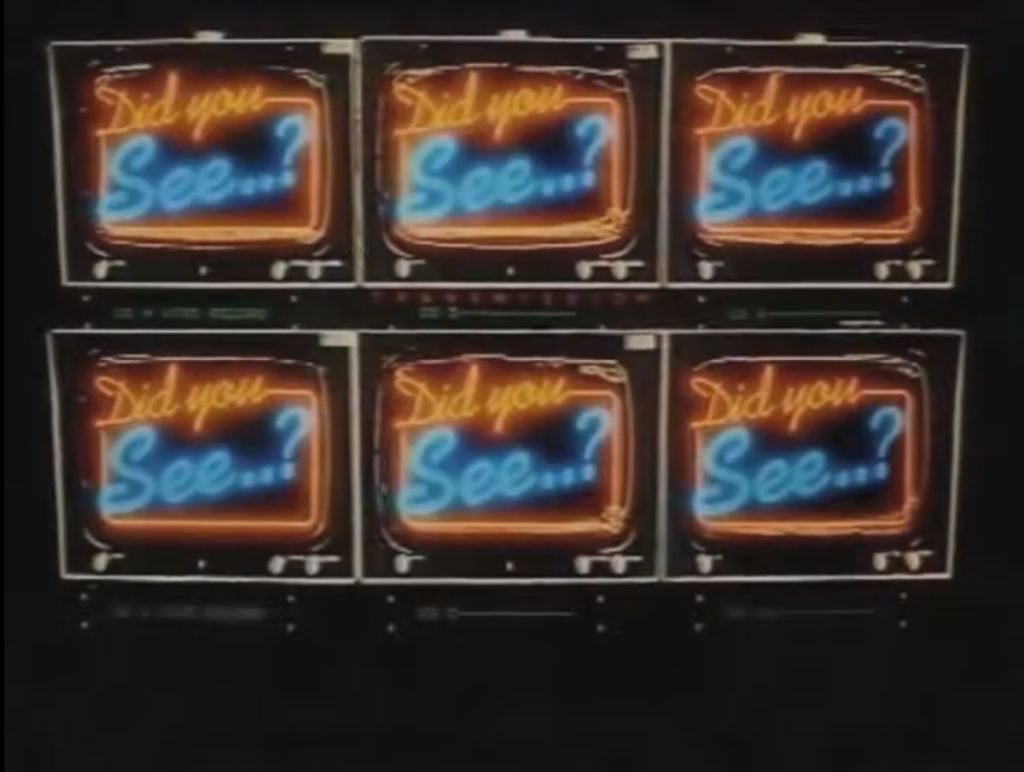
As odd as it is to look back on all of that now, TV That Time Forgot was one of several throwaway social media projects that I started during lockdown – you can also find the collected Trumptonshire Architecture here -with the intention of giving myself and others both a brief distraction and a bit of a laugh first thing in the not especially cheerfulness-overtroubled morning. It essentially just took the form of an off-the-cuff impressionistic description of a half-forgotten television programme, largely selected on the rigorous basis of ‘whatever I thought of first’; although it was intended as throwaway entertainment rather than an academically intensive study of the historical, social and cultural form of the medium, this didn’t stop far too many tiresome individuals from responding scoffing that they, personally, remembered the programme being mentioned in a jokey and semi-informative manner as though that in itself negated the entire point and purpose of the whole exercise. They might well remember The Lost Islands, but they had also clearly forgotten that it is both possible and permissible to have a bit of fun.
Anyway, yah book sucks to all of them and indeed to the handful of individuals who forced me to have to delete a couple of entries when they replied being rude about a star or presenter with them actually tagged in – well done guys, you really helped during a moment of international need there – it was enormous fun to do and hopefully to read too during a fairly grim time and indeed at a time of day when everyone was being bombarded with simultaneously infuriating and distressing headlines from all directions whether they liked it or not, and while it might not quite have gone as viral as that video call linked-up choir of celebrities singing No Bed For Beatle John or whatever it was, hopefully my Barnaby-riffing selflessness slash selfishness might have made first thing in the socially distanced morning a little more tolerable for a few people. Maybe even including one or two who actually remembered the time-forgotten show in question. You never know.
So, pausing only to mention that you can find an expanded version of this in Keep Left, Swipe Right (available in paperback here or from the Kindle Store here) with lots more on many more long-forgotten television programmes too, here’s The Complete TV That Time Forgot. What’s more, it’s arranged into roughly chronological order with the unintentional outcome that it now starts with a dog and ends with another dog. Although only one of them travels in time and space.
Belle And Sebastian (BBC1, 1967)
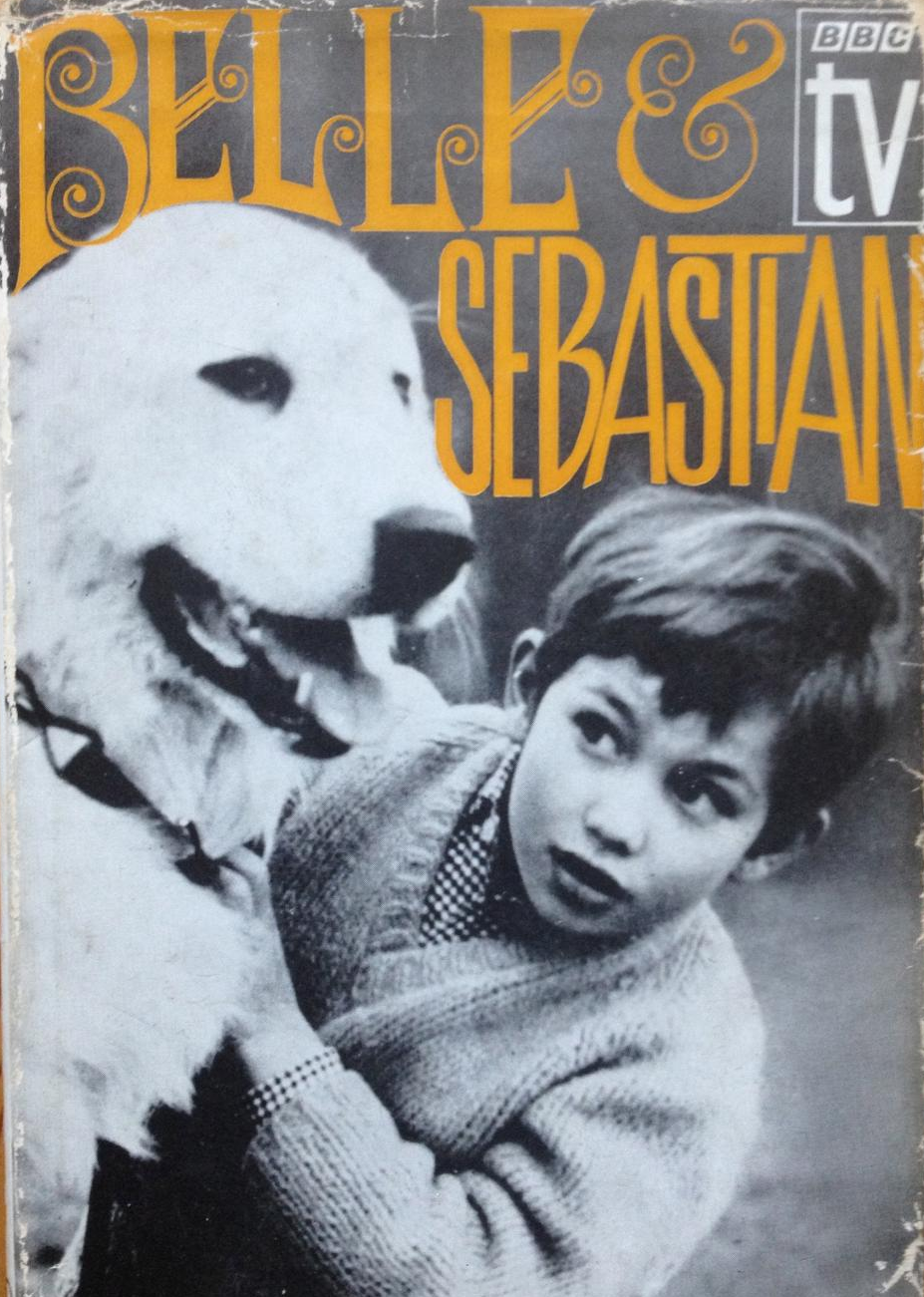
Band-inspiring black and white dubbed French escapades of a boy and his socially-spurned dog in the throes of a bleak existential Alpine winter, weighing heavily on the subconscious of a generation who would go on to favour quiet contemplation and continental breakfasts.
There’s more quiet contemplation about Belle And Sebastian in Wrapped Up In Books here.
The Flashing Blade (BBC1, 1969)
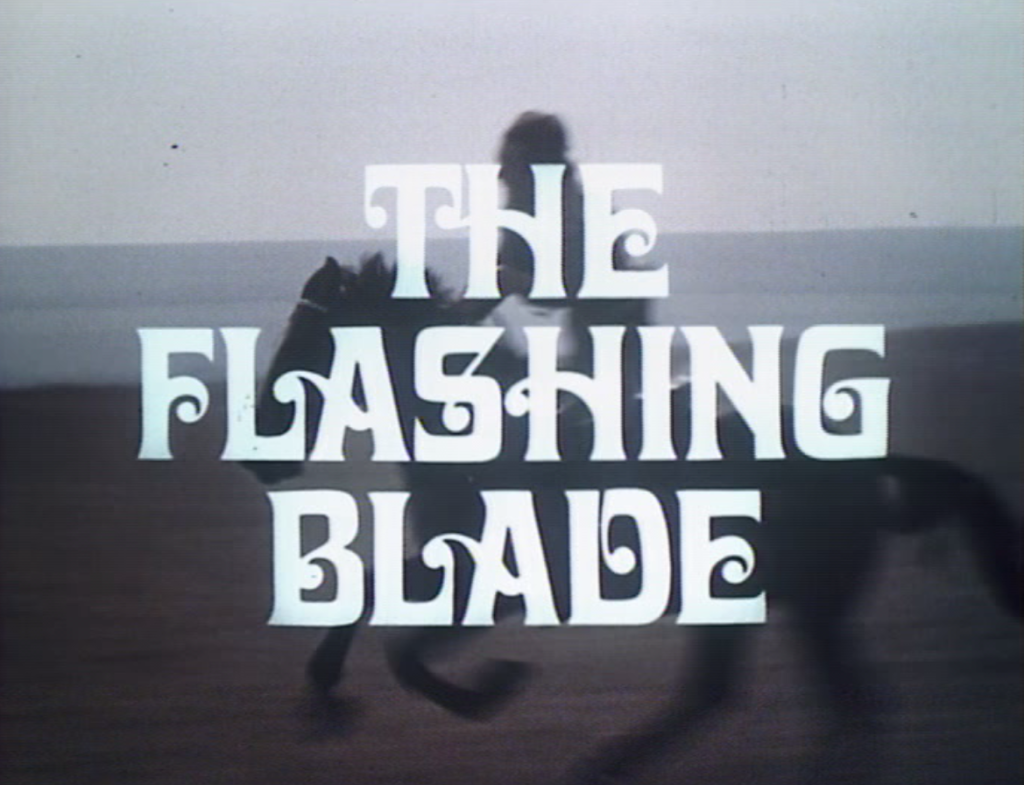
Swashbuckling dubbed French costume drama derring-do charting the sword-swinging escapades of Francois, Chevalier de Recci with added galloping beat boom theme song. Later given an extremely silly reredubbed makeover by Russell T. Davies.
You can find more about The Flashing Blade, including why the BBC never quite managed to show the final episode properly, in You’ve Got To Fight For What You Want here.
Where Was Spring? (BBC2, 1969)
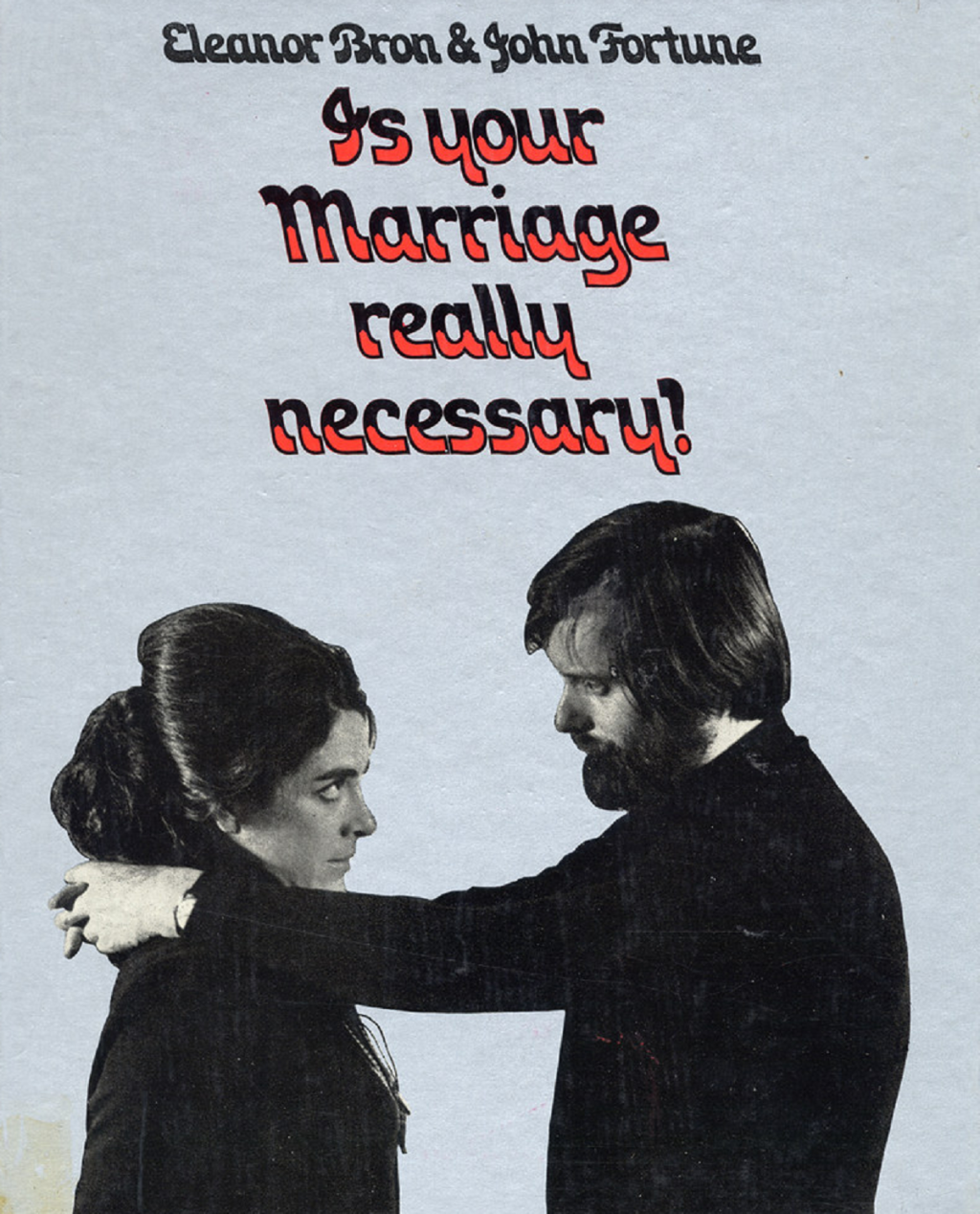
Eleanor Bron and John Fortune with a late-night wry look at the complexities of romantic relationships ancient and modern, with music by The Kinks and animations from Beatles pal Klaus Voorman. More or less the last big statement of the ‘Satire Boom’.
World In Ferment (BBC2, 1969)
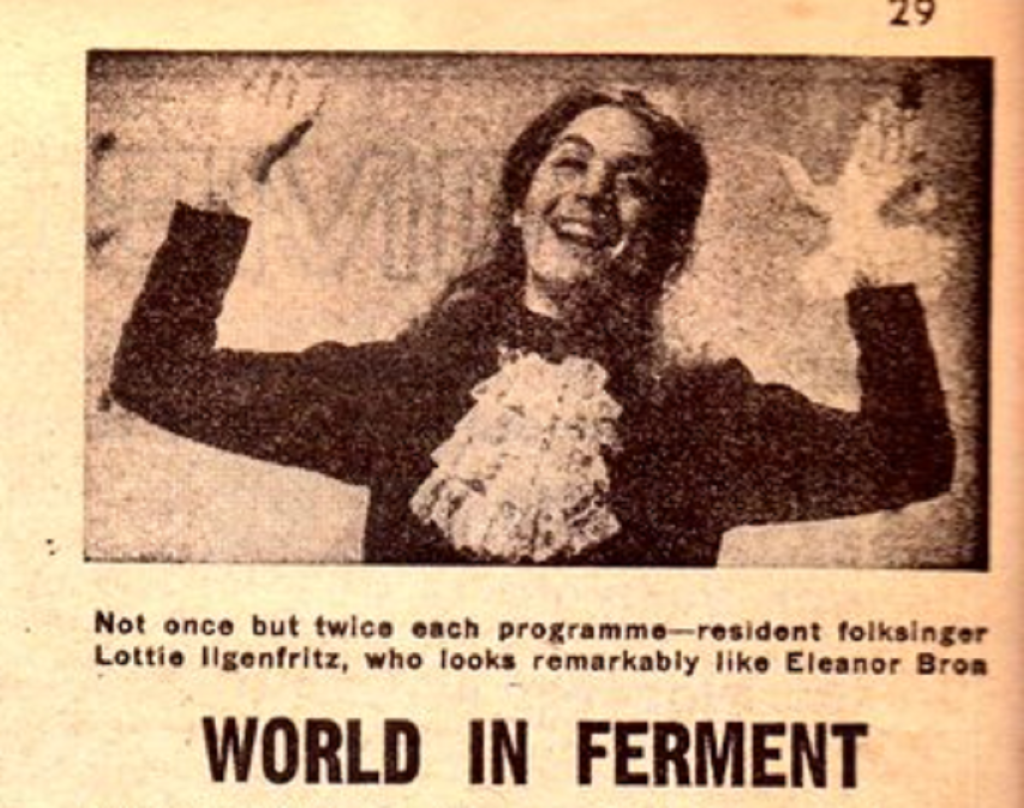
Absurdist theatre sensation N.F. Simpson runs riot with an irreverent tweaking of television current affairs presentation starring several of the Satire Boom crowd. Essentially Brass Eye for the I’m Backing Britain age.
Music Time (BBC1, 1970-91)
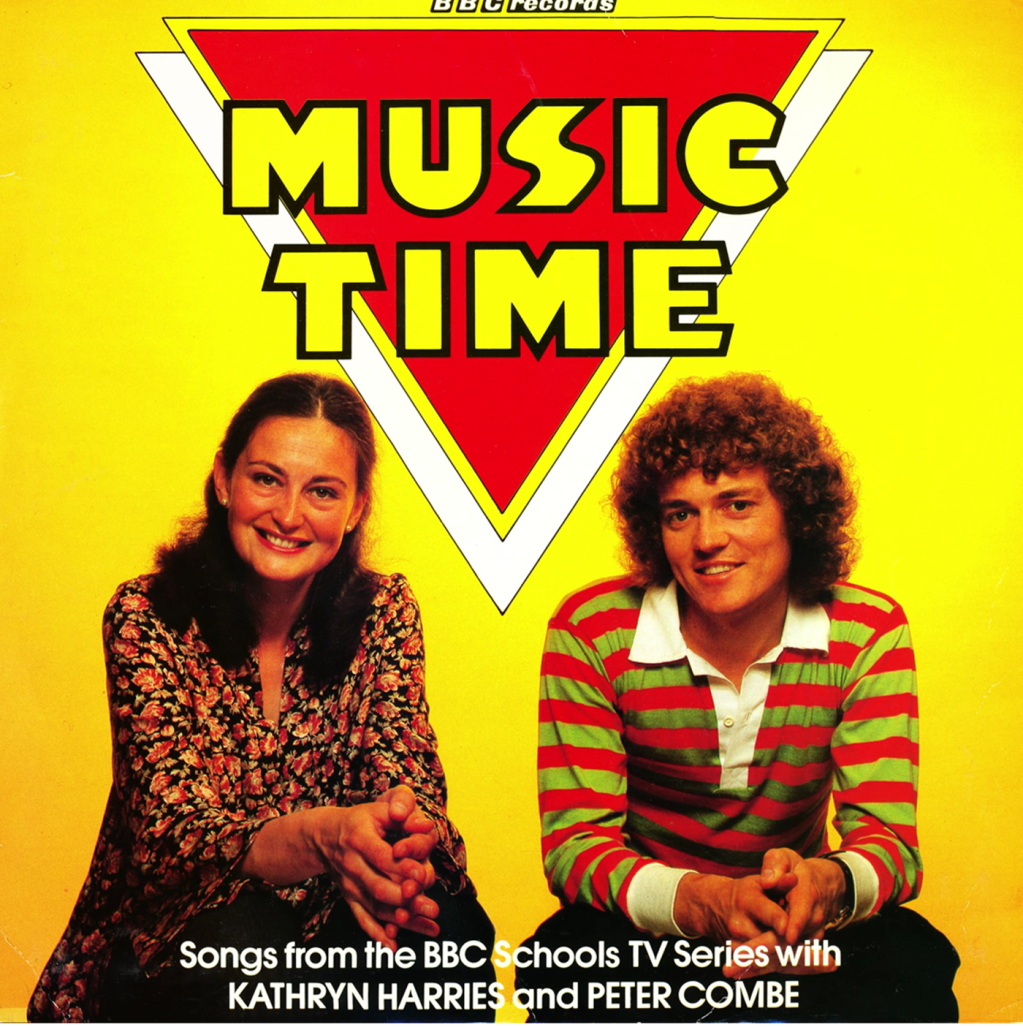
Schools Television-punted introduction to the world of minims and quavers, with interactive big light-up note accompanied singalongs of proto-World Music folk song likes of Zum Gali Gali and Cadet Rousselle punctuated by jerkily animated adaptations of ballets.
Music Time‘s animated adaptation of Lieutenant Kije gets a fresh military investigation in There Was A Gentleman From Way Up North And Kije Was His Name here.
The Original Peter (BBC2, 1970)

The Mike Westbrook Concert Band, The Welfare State and a load of Fringe-friendly variety acts take over Television Centre with a Prog-Jazz Performance Art Knife-Throwing Sword-Swallowing Hand-Balancing psychedelic carnival. Even more peculiar than it sounds.
As difficult it is to actually convey how peculiar The Original Peter is, I had a go here.
Farmhouse Kitchen (ITV/Yorkshire, 1971-90)
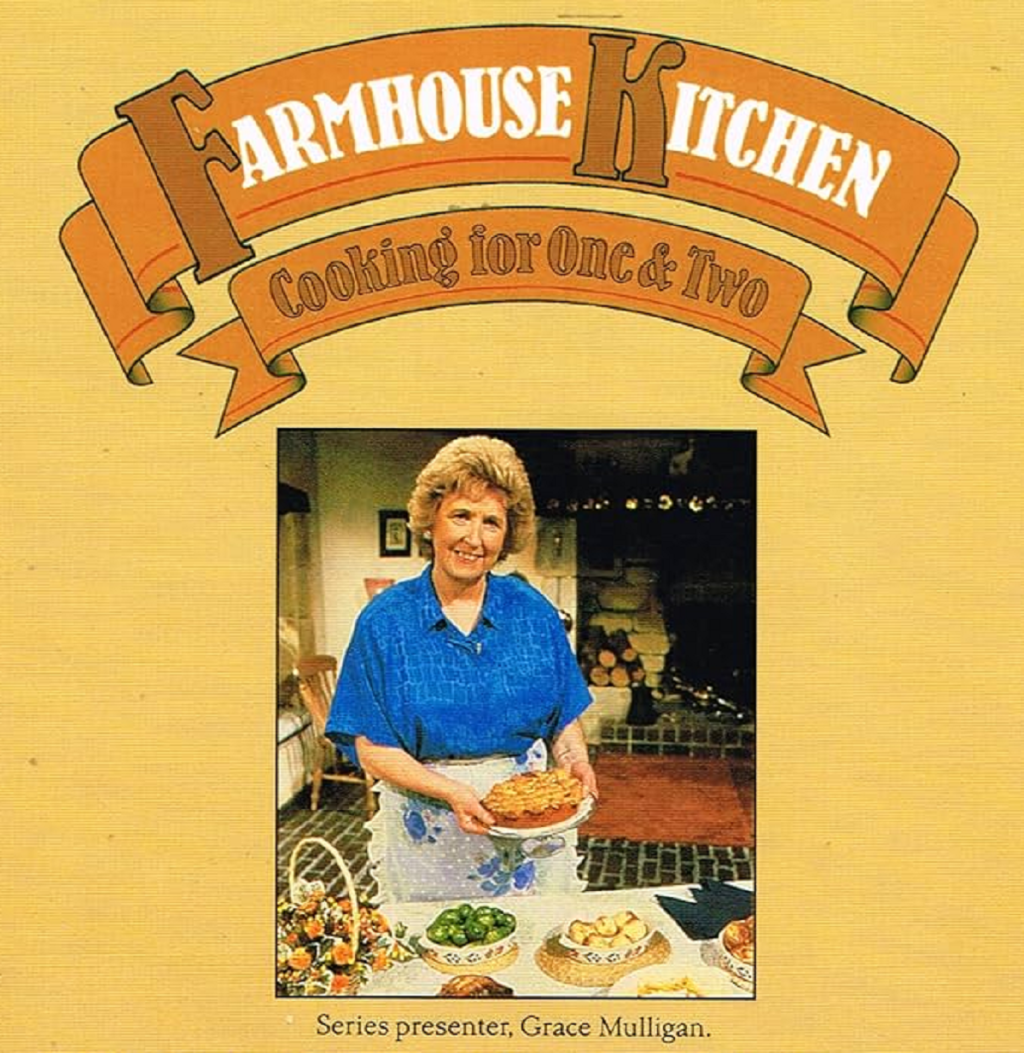
Good old-fashioned back to basics staple fare none of your fancy foreign ingredients afternoon culinary tips from Dorothy Sleightholme and/or Grace Mulligan, notable more for its wild jazzy theme music than for heftily-crafted quiches.
The Beachcombers (CBC, 1972-90)
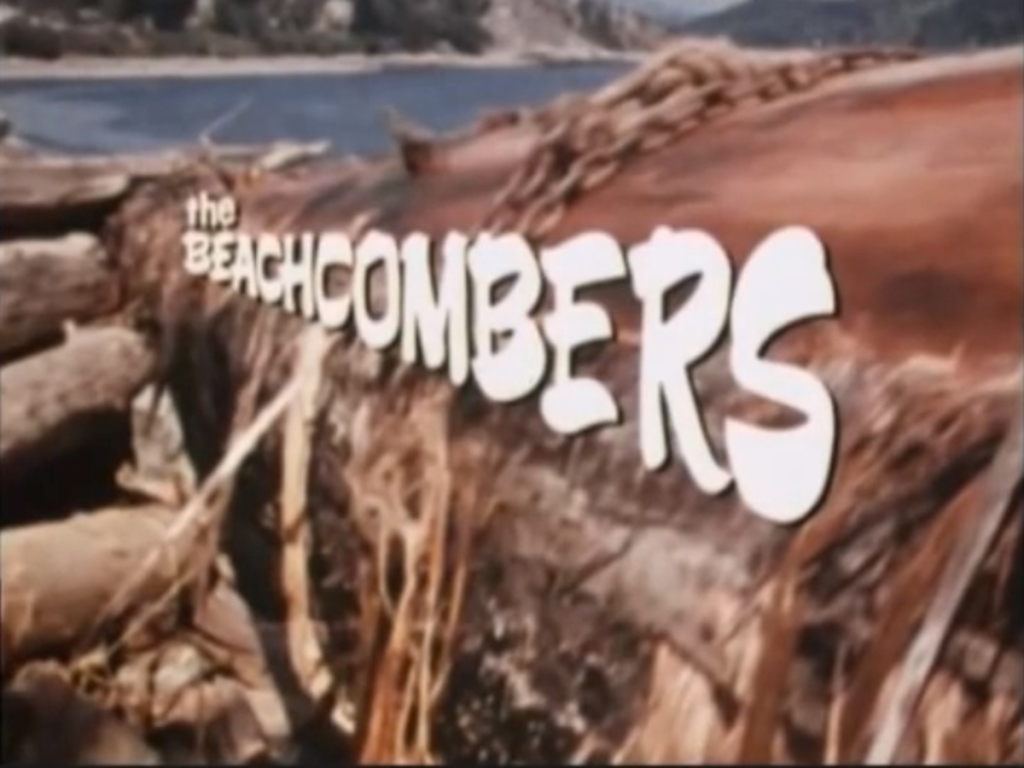
Canadian action comedy with overly dynamic theme music revolving around rival factions of beachfront diner-frequenting driftwood collators, shown by ITV in an indeterminate mid-morning slot apparently for the benefit of no actual audience at all.
Stephen O’Brien did his best to recall anything at all about The Beachcombers beyond the opening titles in Looks Unfamiliar here.
Stories From Toytown Featuring Larry The Lamb (ITV/Thames, 1972-74)
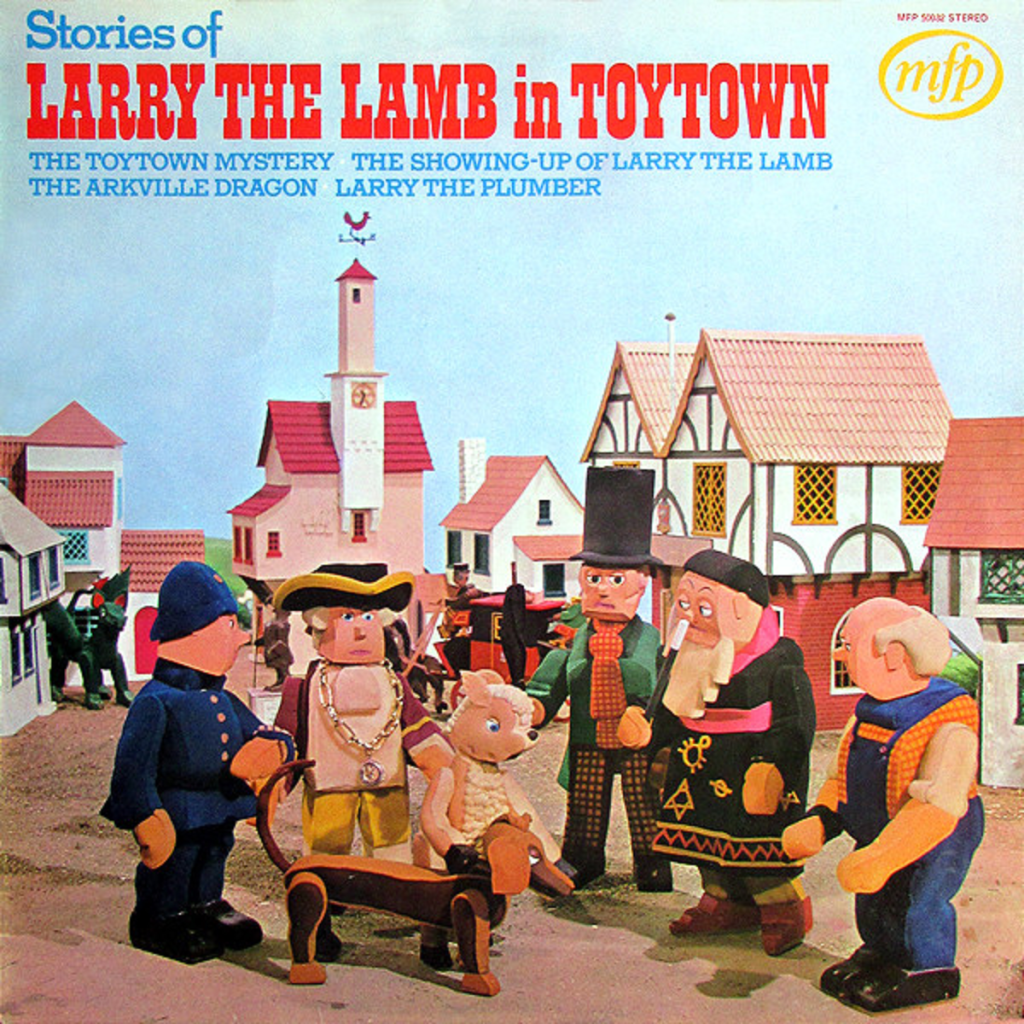
Bleat-tastic stop-motion adaptations of the original radio absurdist yarns concerning Larry and Dennis trying to do good deeds and somehow infuriating Mr. Growser in the process, invariably occasioning him to adjudge them ‘a disgrace’.
Weekend World (ITV/LWT, 1972-88)
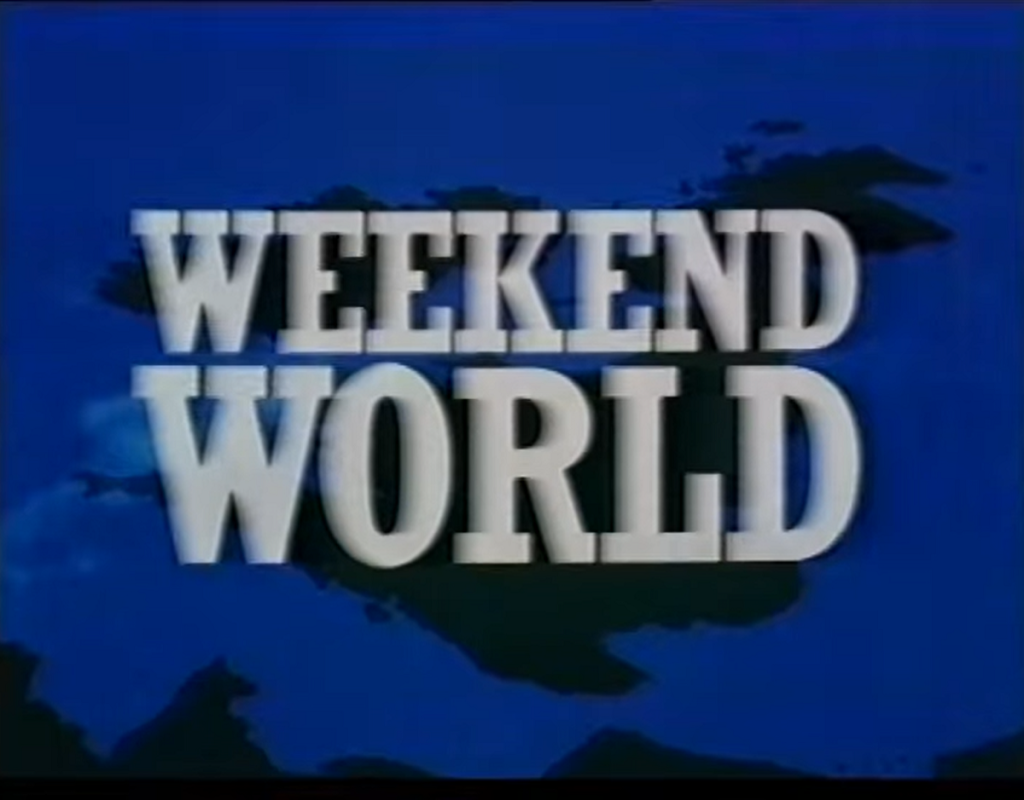
Leather swivel chair-dominated Sunday lunchtime political smackdown with Brian Walden standing for no nonsense from Lord Hailsham and company in a manner that they’d all cry about now with incongruously belting prog-rock theme music.
Sam On Boff’s Island (BBC1, 1972)

Serialised strand in schools programme Words And Pictures with Tony Robinson being taught basic spelling by some skittering Smallfilms puppets with songs by Madeleine and Gabriel from Bagpuss. Folk Horror with an emphasis on alliteration.
Meryl O’Rourke had plenty to say about the Say-Birds and company with a look at Sam On Boff’s Island in Looks Unfamiliar here.
Wait Till Your Father Gets Home (Hanna-Barbera, 1972-74)
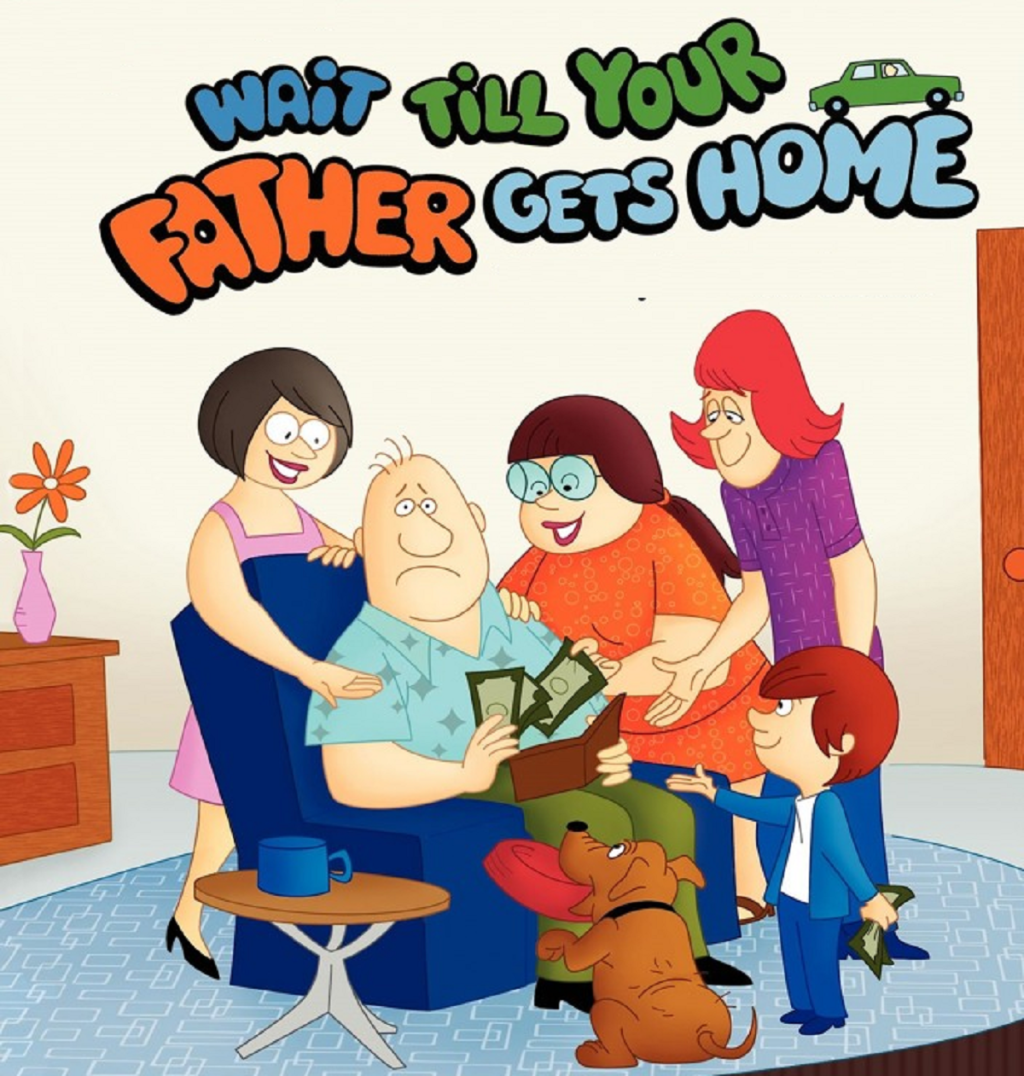
Primetime animated cartoon-for-adults sitcom with put-upon all-American everyman Harry Boyle perpetually exasperated by squabbling kids, hippies on the make and Nixon-saluting survivalist neighbours. Not openly acknowledged as an influence on The Simpsons.
You can find an otherwise unavailable feature on the episode of Wait Till Your Father Gets Home where Harry reluctantly becomes landlord to a hippy in The Camberwick Green Procrastination Society here.
Barnaby (BBC1, 1973)

Dubbed French off-script adventures of a singing bear who ran away from home to join the circus, became King Of The Birds (with cardboard beak) and somehow ended up at the North Pole. Also very insistent that you called him by the correct name.
There’s an in-depth look at the episode where Barnaby made his debut in the Big Top, with absolutely no attempt whatsoever to treat him as the figurehead of some variety of alternative belief system, in Never Call Me Jack Or James here.
Ragtime (BBC1, 1973-75)
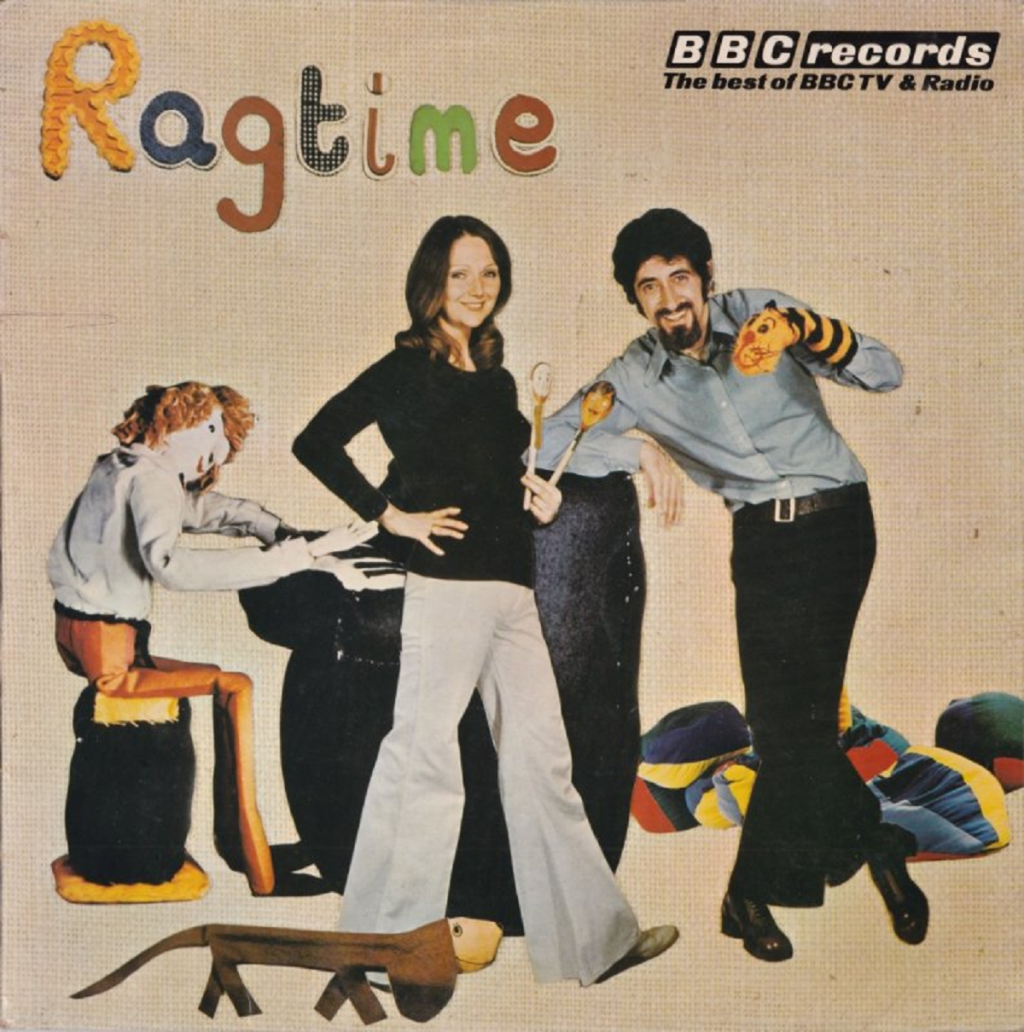
Play School escapees Maggie Henderson and Fred Harris trade puns, swap riddles and sing Philly Soul-inflected songs about counting chimney pots with the aid of glove puppets made from odds and ends and a gaggle of spoons with faces drawn on them.
You can find much more about the Ragtime album and its assortment of unexpectedly funky grooves in Top Of The Box Vol. 2 here.
Bailey’s Comets (DePatie-Freleng, 1973-75)

Sub-Hanna Barbera teenagers with no dog race across the world on rollerskates hoping to beat a load of not at all Wacky Races-inspired competitors to win… well they never actually found out what.
Chris Shaw recalled his frustration at that never actually finding out what Bailey’s Comets were angling to win in Looks Unfamiliar here.
Bad Ronald (ABC, 1974)
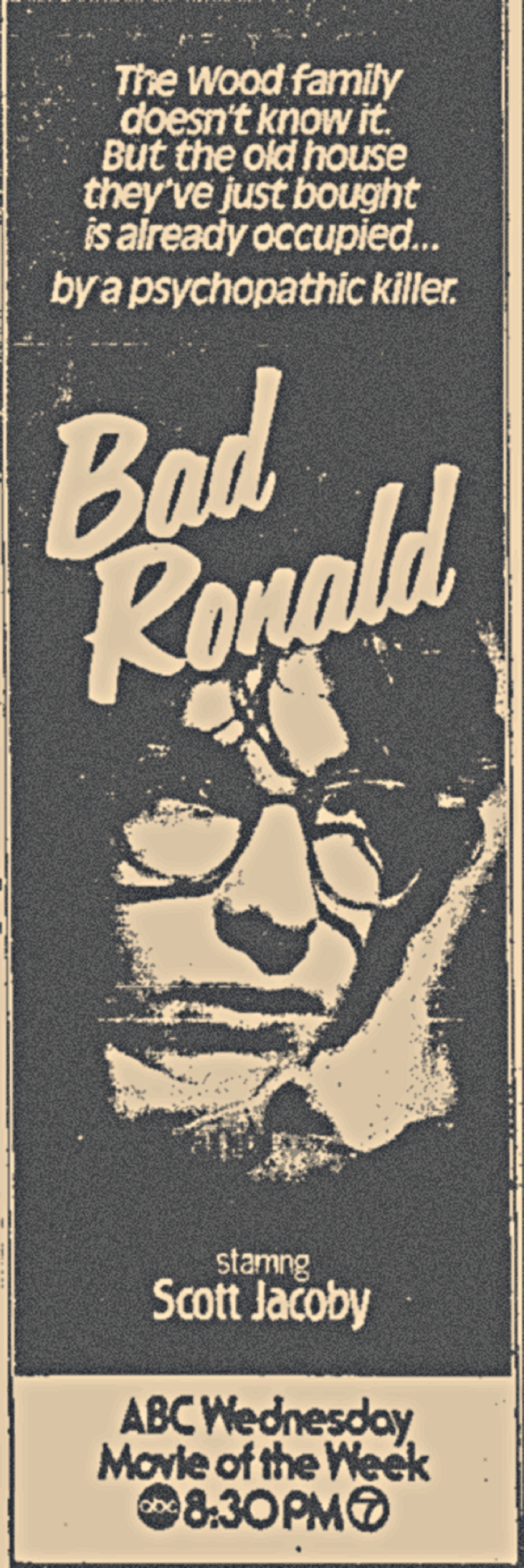
Sleazetastic proto-slasher TV Movie about a disturbed teenager with fantasy world-ruling aspirations hiding in a respectable family’s ‘crawlspace’ after accidentally committing a murder. Gobsmackingly shown by ITV as afternoon filler.
…and you can find out exactly what it was like to watch that gobsmacking mid-afternoon showing of Bad Ronald in You’re Weird, Ronald here.
Skiboy (ITV/ITC, 1974)

Jetsetting glamour-surfing big budget location-filmed action serial about a teenage ski instructor who thwarts smuggling rings and defuses wartime bombs – all of which somehow mysteriously congregate on The Alps – by skiing at them. No, really.
No, I haven’t just made this up, and you can find the full story behind Skiboy – or, as Look-In had it, TV’s Newest Series – here.
Paint Along With Nancy (ITV/HTV, 1974-78)
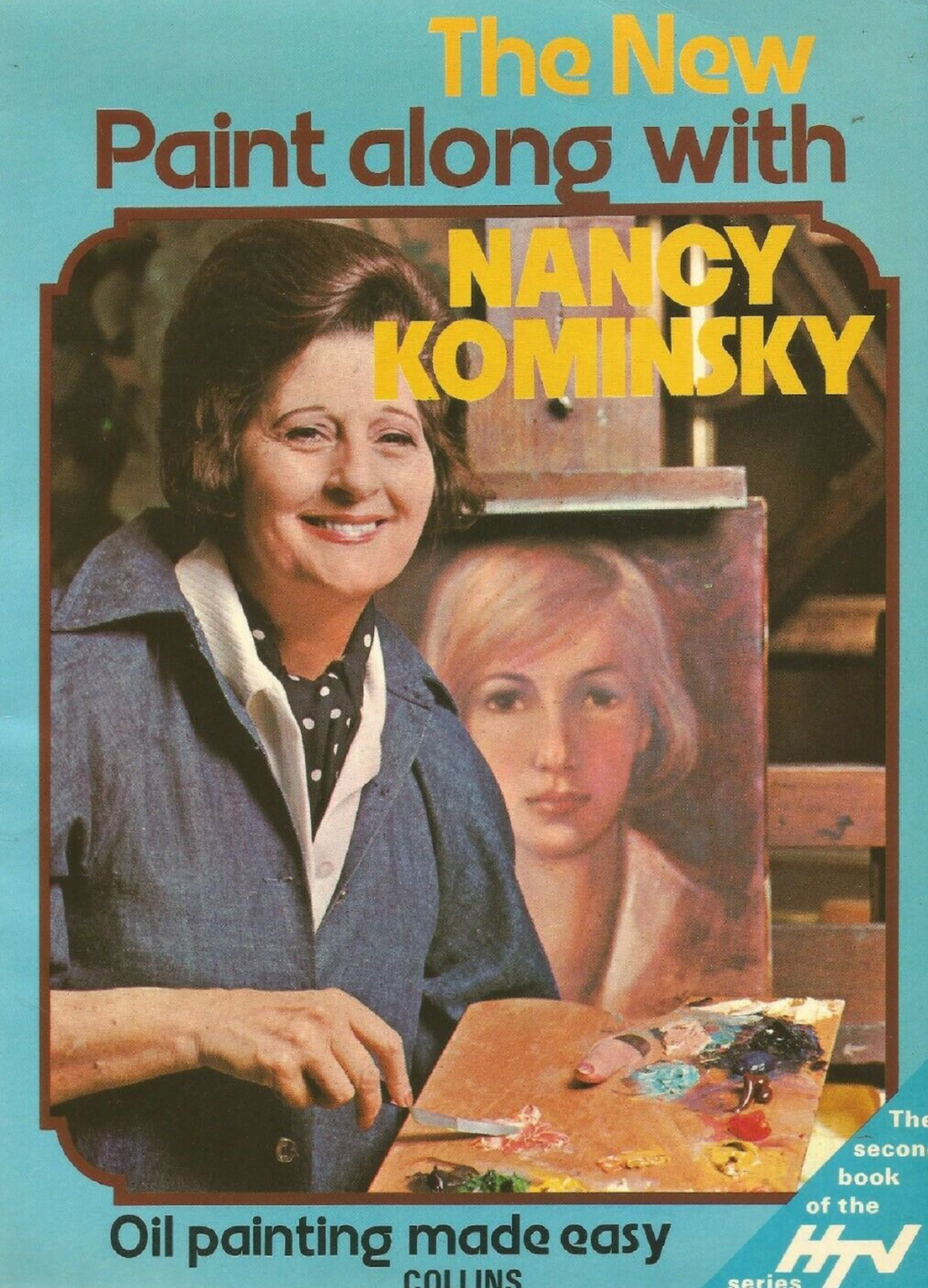
Lunchtime watercolour how-to with eccentric palette-knife wielding host Nancy Kominski, time-lapse sketching and chintzy electric piano samba theme tune. Made painting feel more like housework than a hobby.
Good Health (ITV/ATV, 1974-88)
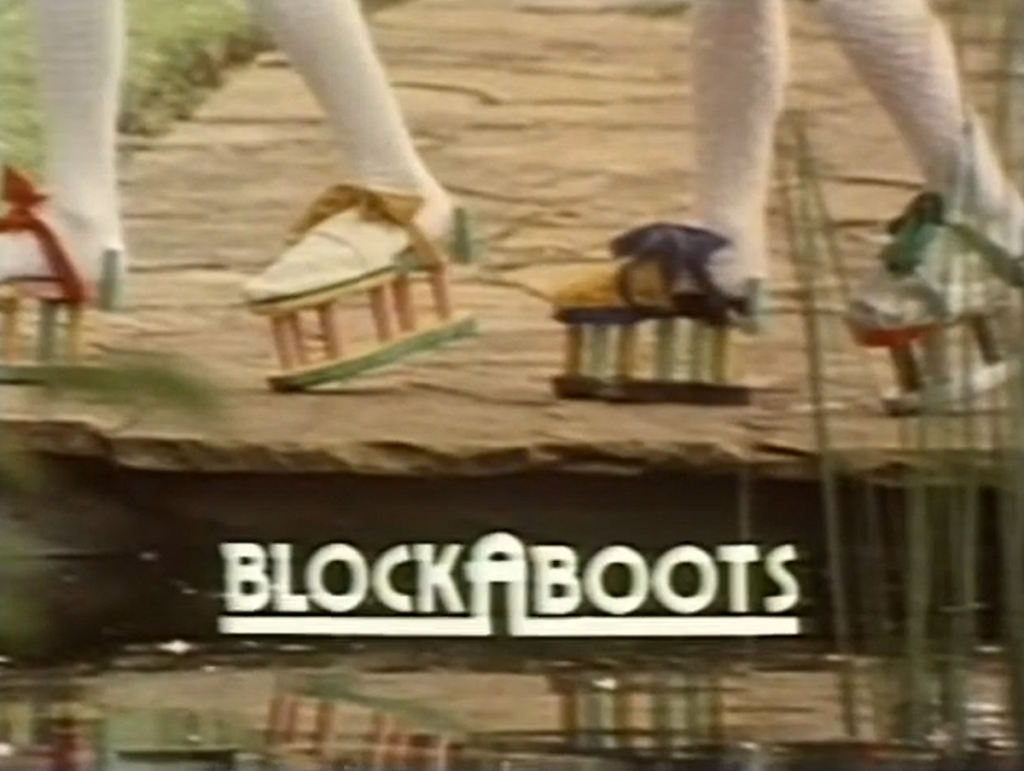
Quirky clean-living promoting schools’ show made on shoestring budget with amateur juvenile cast which lent an underminingly creepy air to proceedings, most notoriously in the cautionary tale of hazardous fashion craze Blockaboots.
Catrin Lowe washed her hands of the Germs Germs Germs episode of Good Health in Looks Unfamiliar here.
Big John Little John (NBC, 1976)
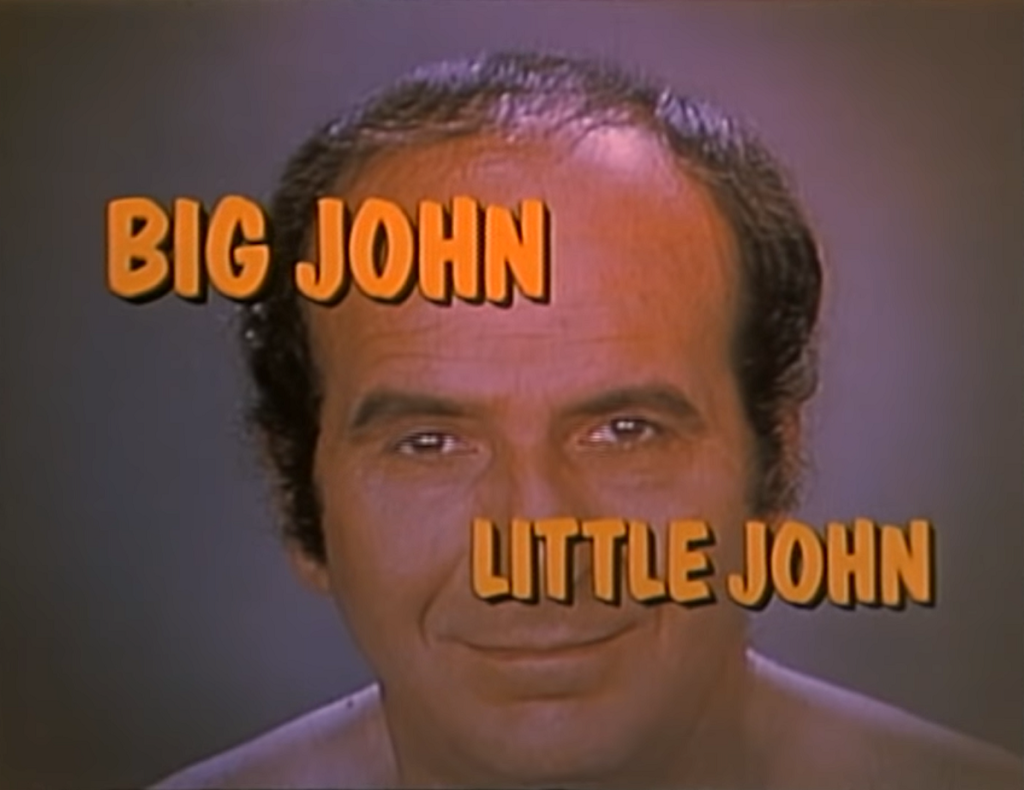
Respectable thirtysomething high school teacher accidentally takes a swig from the Fountain Of Youth while on holiday, leaving him with inconvenient propensity to turn into a twelve-year-old version of himself at inopportune moments – or, as the overexplanatory theme song had it, “grew from high to low”.
Lisa Parker and Andrew Trowbridge queries how the premise of Big John, Little John could actually work on either a practical or logical level in Looks Unfamiliar here.
Chorlton And The Wheelies (ITV/Thames, 1976-79)
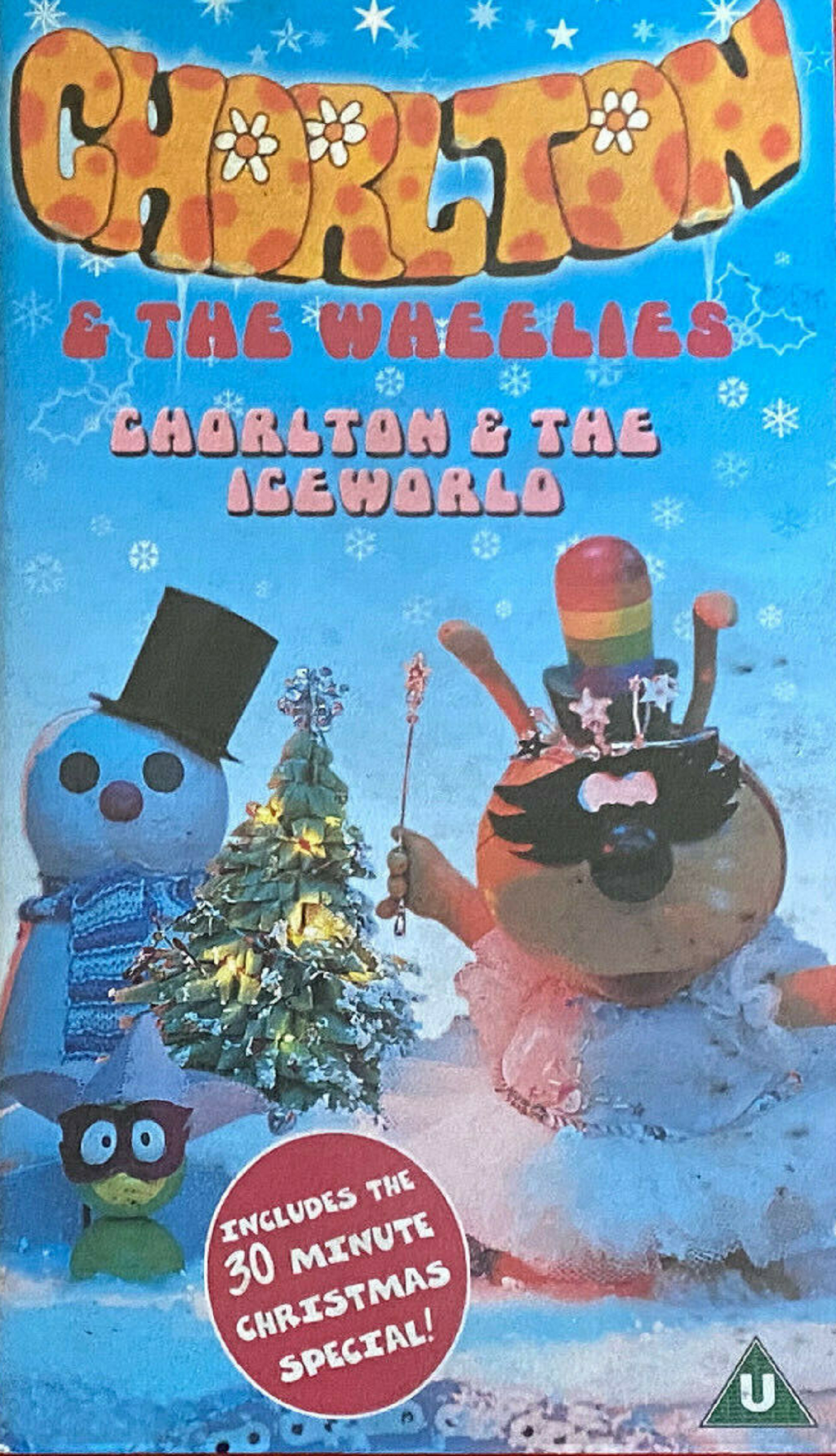
Relentlessly cheerful stop-motion Northern ‘Happiness Dragon’ Chorlton arrives to protect suspiciously Labour Party-like Wheelie World from cackling chin-heavy witch Fenella. He may not even have been entirely aware that he was doing it
Grace Dent exhorted us all to ‘Be More Chorlton’ in Looks Unfamiliar here.
Jamie And The Magic Torch (ITV/Thames, 1976-79)
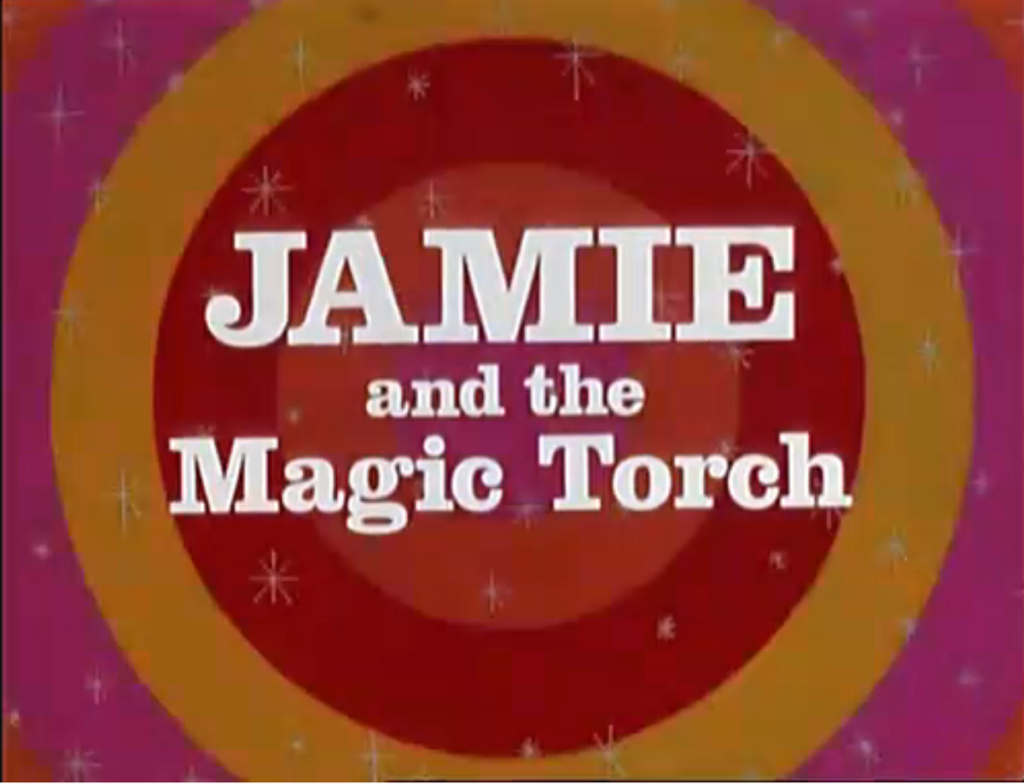
Cartoon boy in orange and red pyjamas and curmudgeonly dog own never-explained reality-straddling flashlight that transports them to not remotely Yellow Submarine-inspired Cuckooland to dispense healthy doses of rationalism.
The Young Doctors (Grundy Organisation, 1976-83)
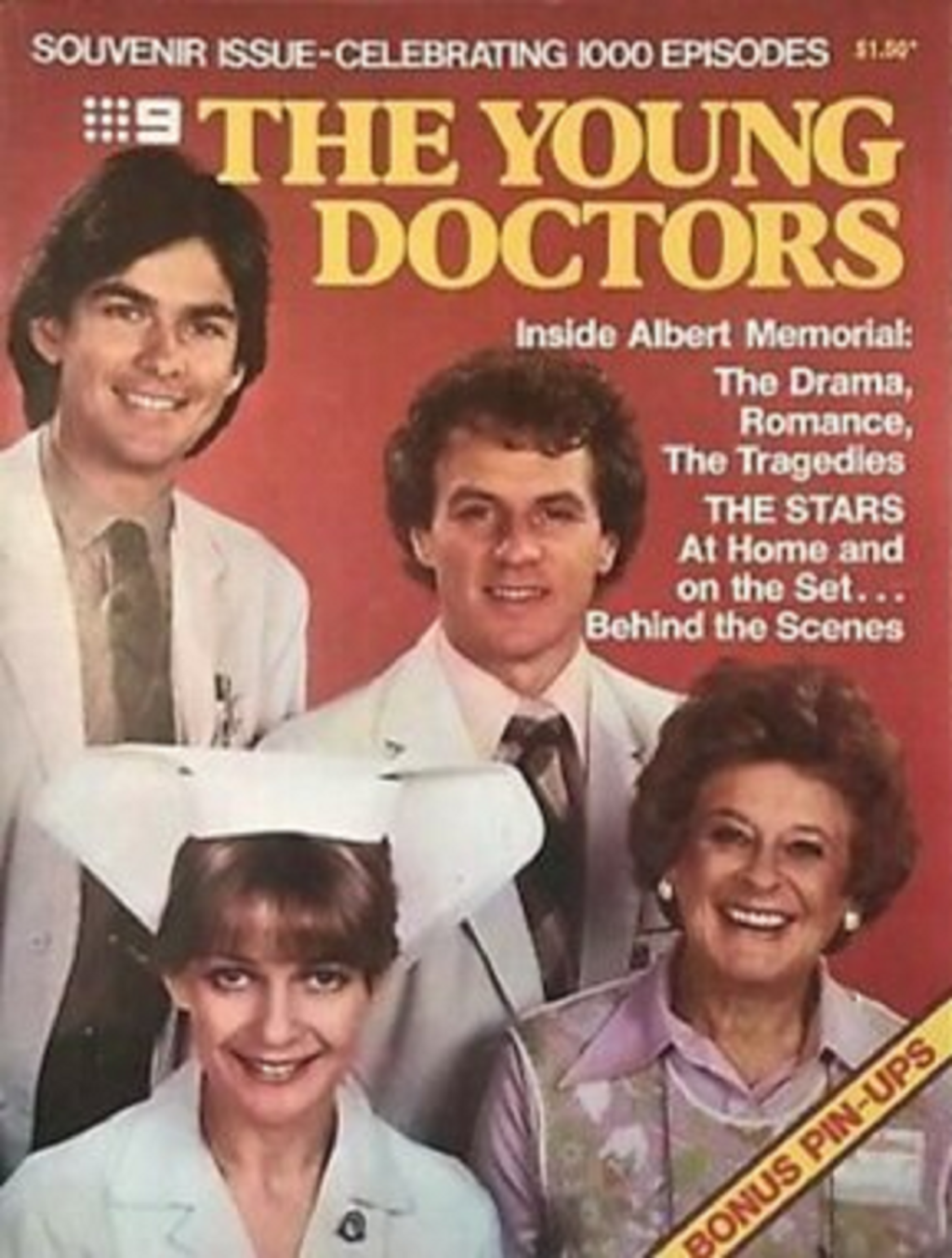
Flares-ahoy light drama with hugely compressed blaring funk-brass theme tune following the duty rosters of the staff of Sydney Albert Memorial Hospital, famously punted out in afternoons by ITV for the benefit of anyone ‘off school’.
Mumbly (Hanna Barbera, 1976)
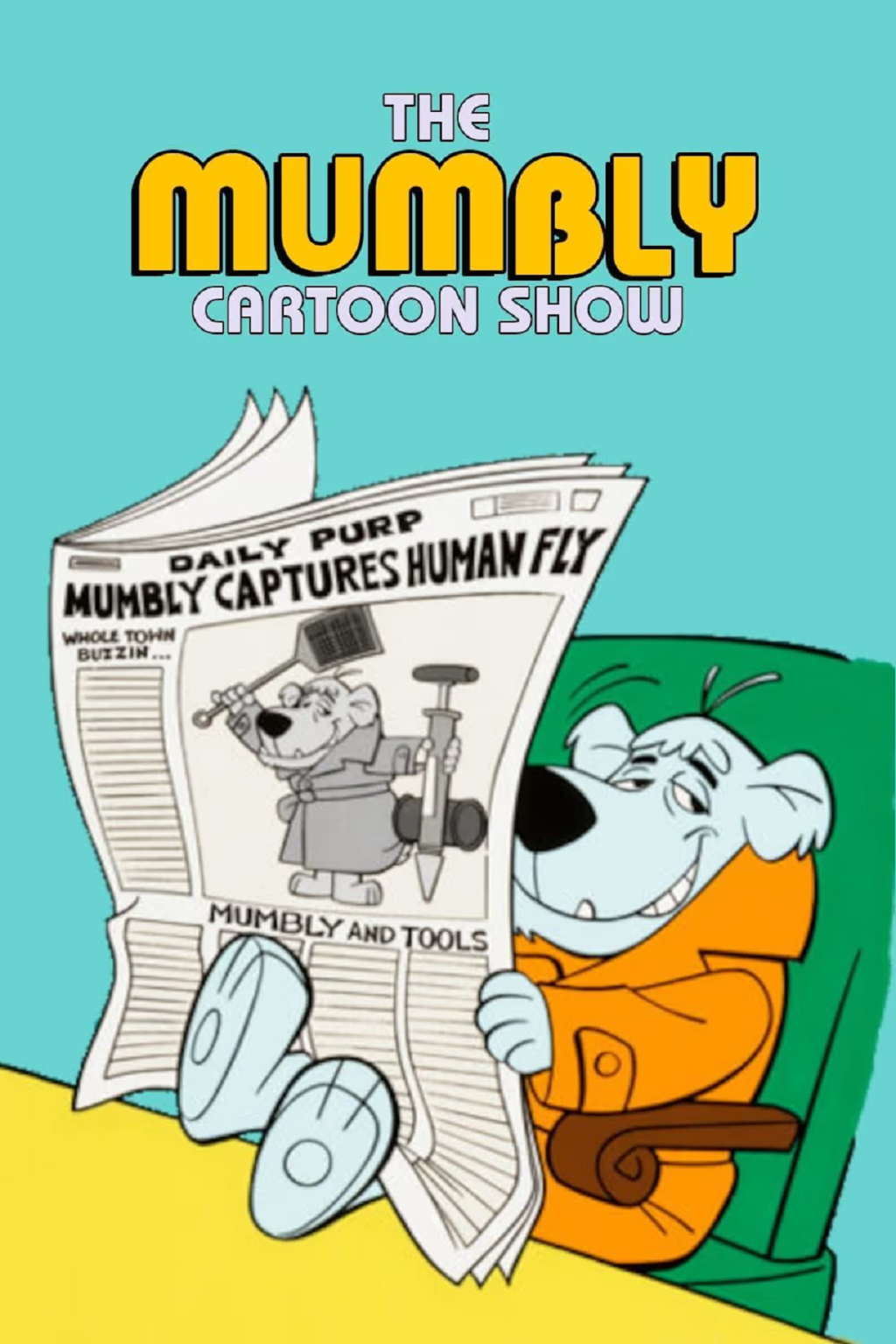
Distant relative of Muttley sets himself up as a Columbo-style private eye complete with James Bond-esque gadget-festooned car and a mutter-prone abrasive relationship with his superiors.
The Sunday Gang (BBC1, 1976-80)

Bible stories retold in modern ‘yoof’ context courtesy of fresh-faced teenage happy clappy singing in the shopping centre types and a screeching ‘Scottish’ puppet mouse that called everyone ‘sassenachs’. Praise be!
You can take a trip through God’s creation with the story of The Sunday Gang in Knocking On Doors, Opening Windows… here.
The Lost Islands (Paramount, 1976)
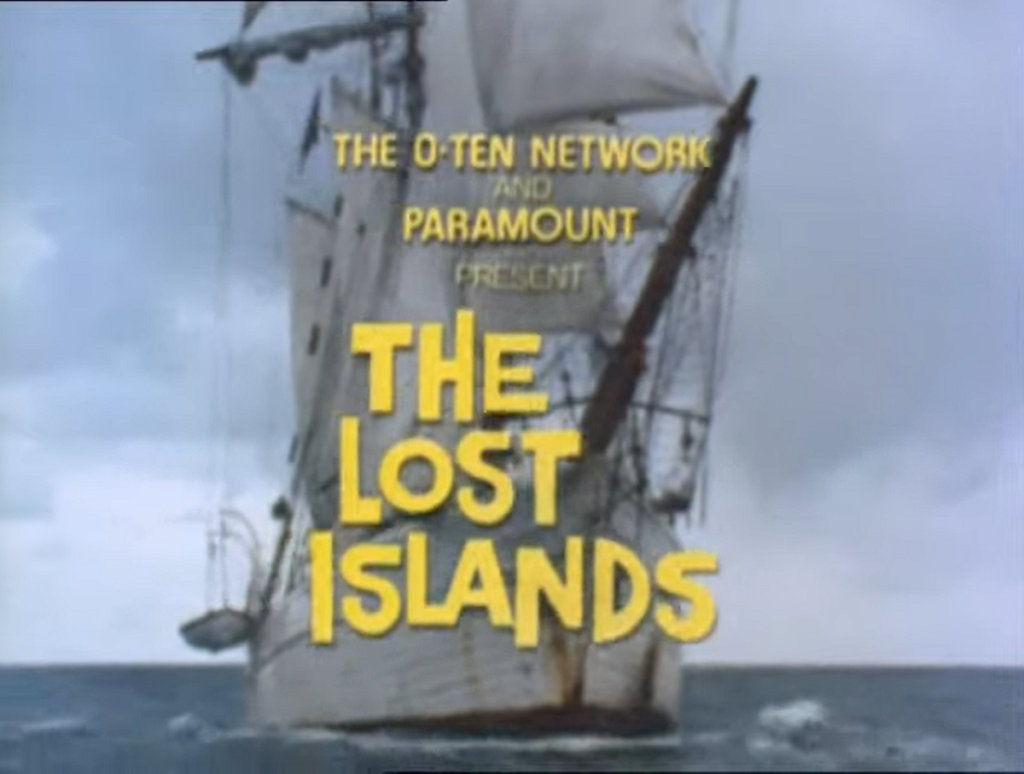
Round-the-world peace-pioneering child genii expedition shipwrecks five youngsters on an uncharted Antipodean island ruled over by ye-olde-talking masked despot The Q, as explained at epic length in a notoriously lengthy Scott Walker-esque theme song.
Heads And Tails (BBC1, 1977-79)
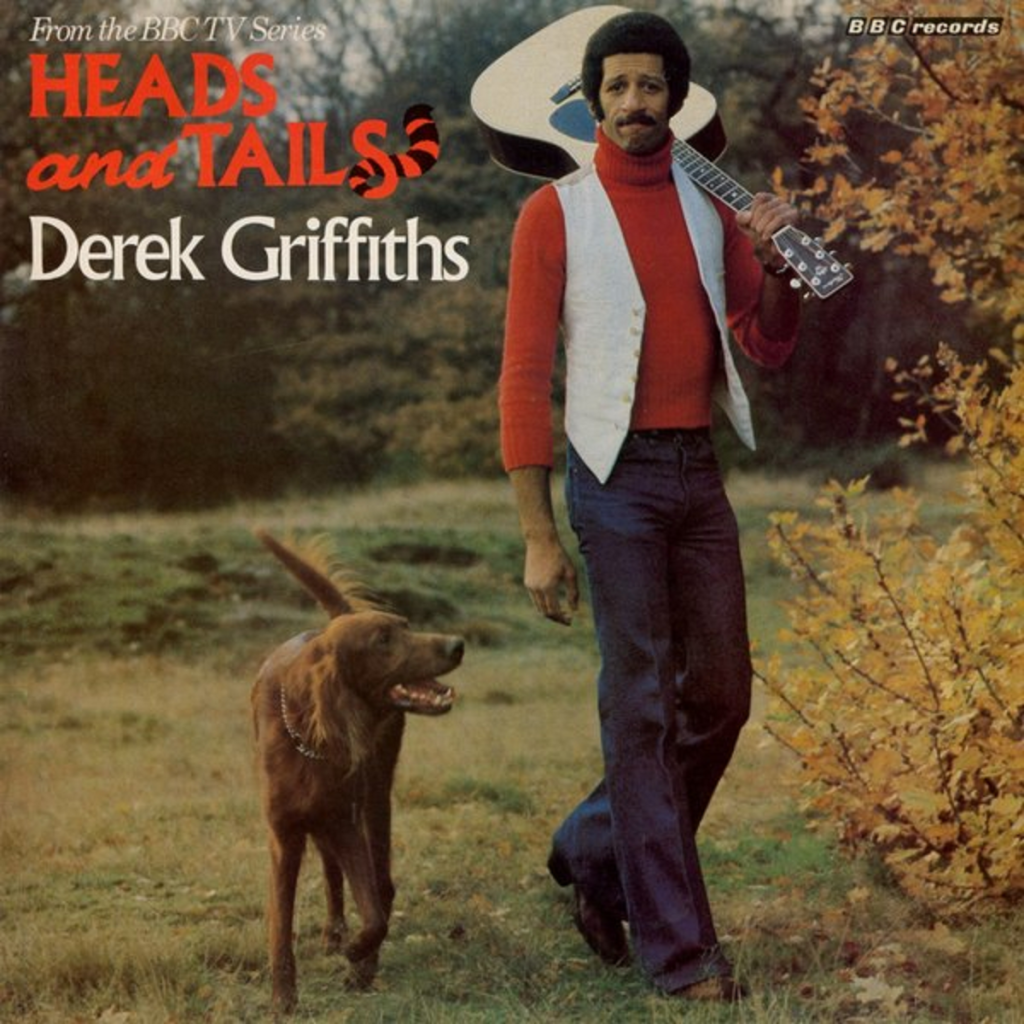
A yodelling guitar-strumming Derek Griffiths introduces younger viewers to the joys of the natural world, belting out folky free-jazz odes to seahorses and comedy close-harmonising proboscis monkeys over wildlife documentary footage offcuts.
You can jog-a-long and indeed dog-a-long with the Heads And Tails album in Top Of The Box Vol. 2 here.
The New Adventures Of Bat Man (Filmation, 1977)
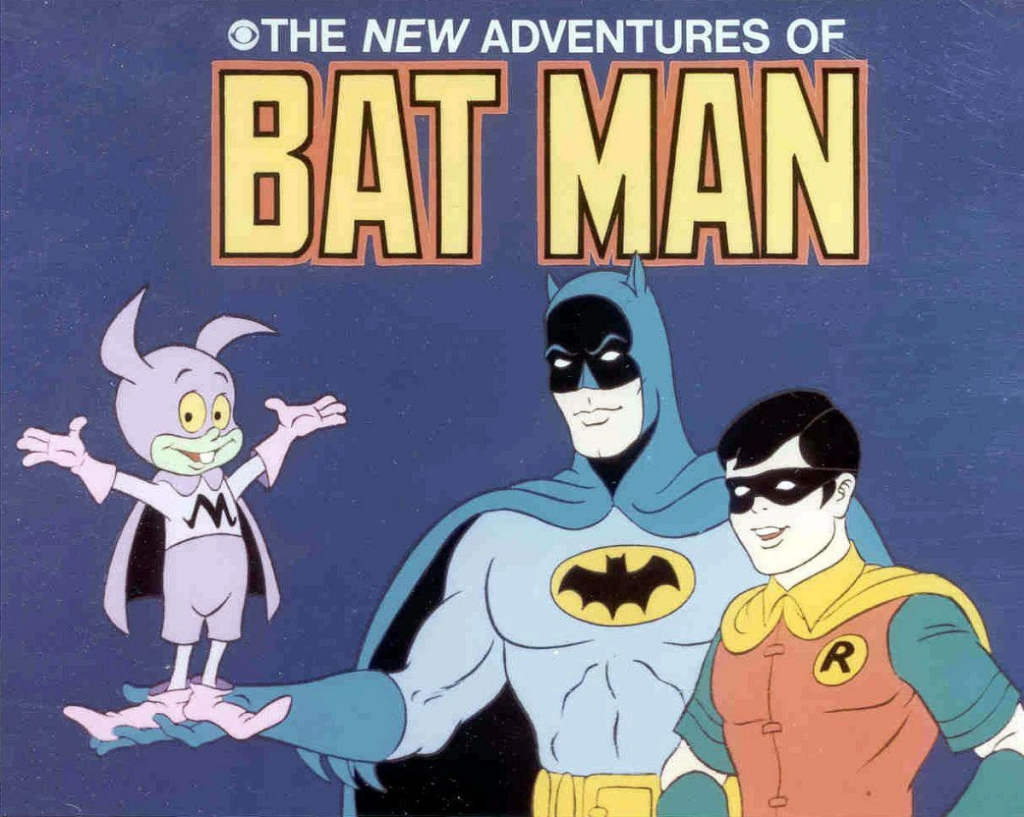
Adam West and Burt Ward return for some moderately darker and moderately more sophisticated animated reminders that crime does not pay, accompanied by Bat-Girl and lighter and somewhat less sophisticated interdimensional sprite thing Bat-Mite.
Bat-Mite wasn’t alone as a semi-canonical cartoon comedy interloper, and you can find more about 7-Zark-7, N’Kima, Orko and company in The Ten Most Non-Canonical Non-Canonical Cartoon Characters here.
The Amazing Spider-Man (ABC, 1977-79)
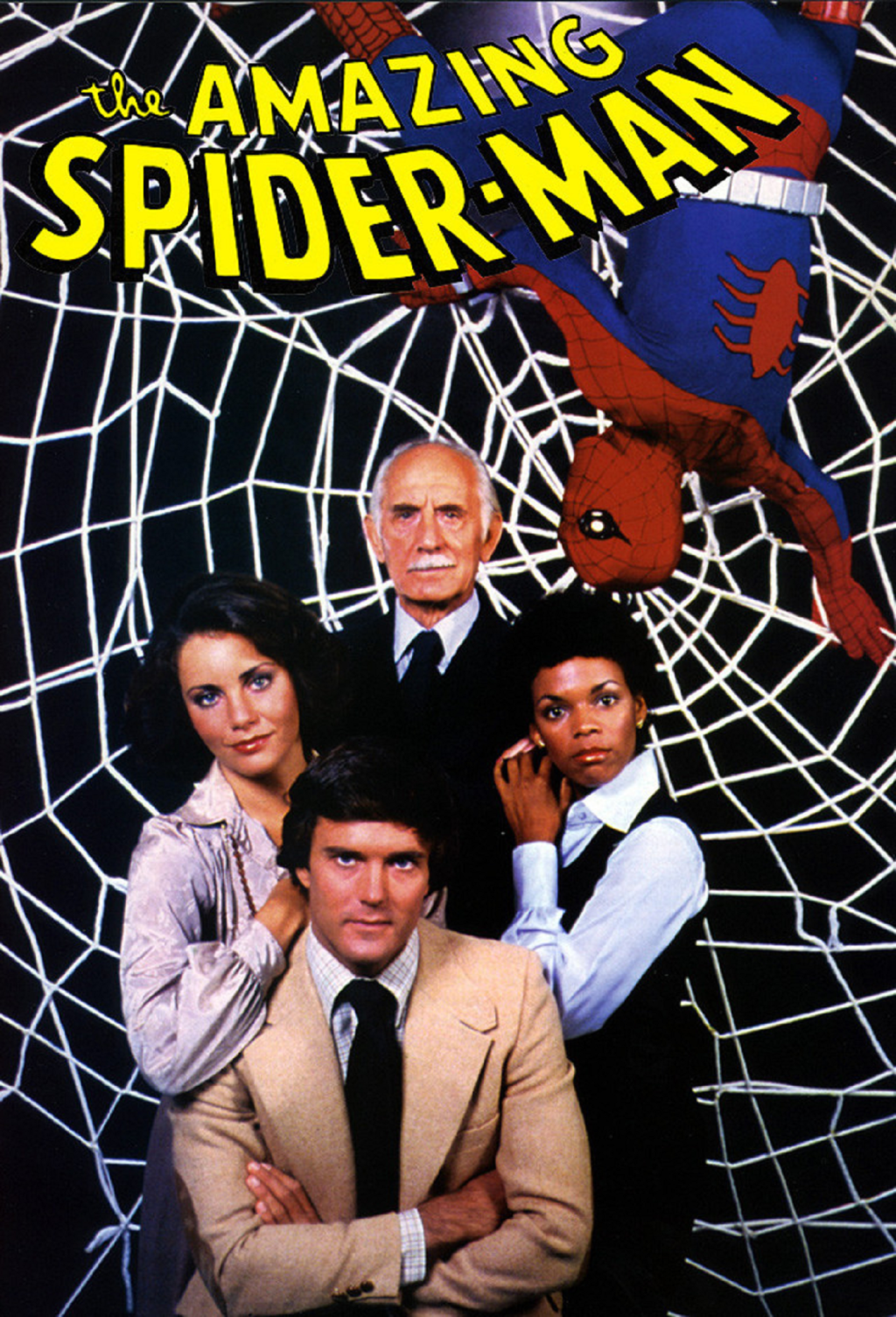
Nicholas Hammond stars as the web-slinger at large in grimy seventies New York as the intended cornerstone of a proto-Marvel Cinematic Universe with actual stuntmen swinging between actual buildings in lieu of ‘real’ special effects.
Gary Bainbridge recalled those heady Friday evenings hoping that Granada wouldn’t pull the scheduled episode of The Amazing Spider-Man in It’s Good, Except It Sucks here.
Space Sentinels (Filmation, 1977)

Teenagers imbued with mythological properties of Hercules, Mercury and Astrea foil activities of intergalactic ne’er-do-wells with the aid of sentient computer Sentinel One and maintenance robot MO against a relentless disco-funk backdrop.
You can listen to me chatting about an episode of Space Sentinels, and its preponderance of villains sporting what can only be described as an Evil James Galway look, in TV Cream Stays Indoors here.
Cheggers Plays Pop (BBC1, 1978-86)
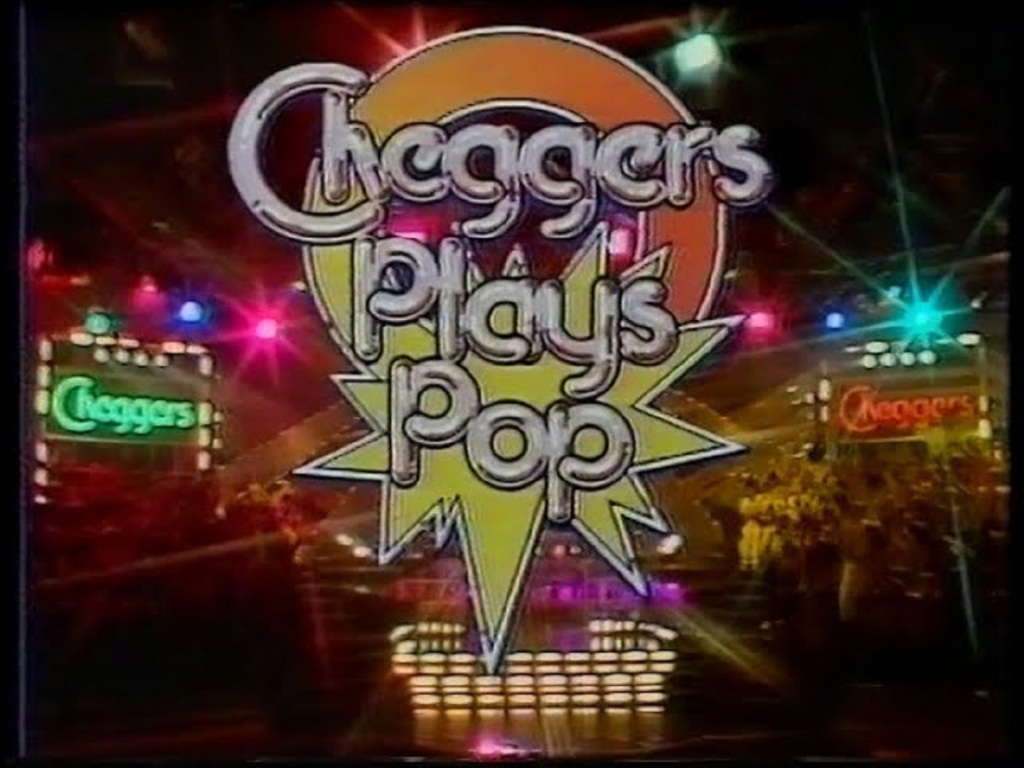
Keith Chegwin leads the ‘Reds’ and the ‘Yellows’ through a series of chart-themed quizzes and rowdy games while New Wave bands plug their singles, complete with hard-rockin’ theme tune and dual memory-burning end-of-round klaxons.
Battle Of The Planets (Sandy Frank Entertainment, 1978)

Post-Star Wars reconstituted adult Japanese anime twisted out of shape into Americanised adventures of Phoenix-piloting bird-themed science ninja team G-Force. Despite the re-editing grubby trace elements still remained, notoriously the appearance of Princess’ pants in the opening titles.
Rae Earl shook her head at just how grubby those remaining trace elements of Battle Of The Planets really were in Looks Unfamiliar here.
Kelly Monteith (BBC2, 1979-84)

Visiting American standup regales an extremely BBC audience with tales of racy escapades in the land of driving on the left, darting between sketches, standup, talking to the camera, studio wandering and frowning at his own script.
Melanie Williams recounted the joys of pleading to be allowed to stay up to watch Kelly Monteith – and occasionally actually being allowed to – in Looks Unfamiliar here.
The Mersey Pirate (ITV/Granada, 1979)

Ambitious attempt at doing a Saturday Morning show live from the deck of a moving ferry, anchored by Radio Merseyside’s Billy Butler and enlivened by Alan Bleasdale-scripted Scully bits. Unplanned-for weather inevitably took its toll and the show was washed overboard within weeks.
You can find the full turbulent story of the rain-lashed voyage of The Mersey Pirate in Ferry Cross The Mersey (Unless It’s Raining) here.
Spider-Woman (DePatie-Freleng, 1979)

Dormammu-trouncing Kingpin-walloping animated escapades of then-brand-new Marvel character – a decades out of time woman in a man’s world who also fights crime, only using very slightly different powers to those of Peter Parker.
You can find my thoughts on Spider-Woman, and why I actually preferred it to the main Spider-Man cartoon at the time, in Looks Unfamiliar here.
Children Of Fire Mountain (South Pacific TV, 1979)
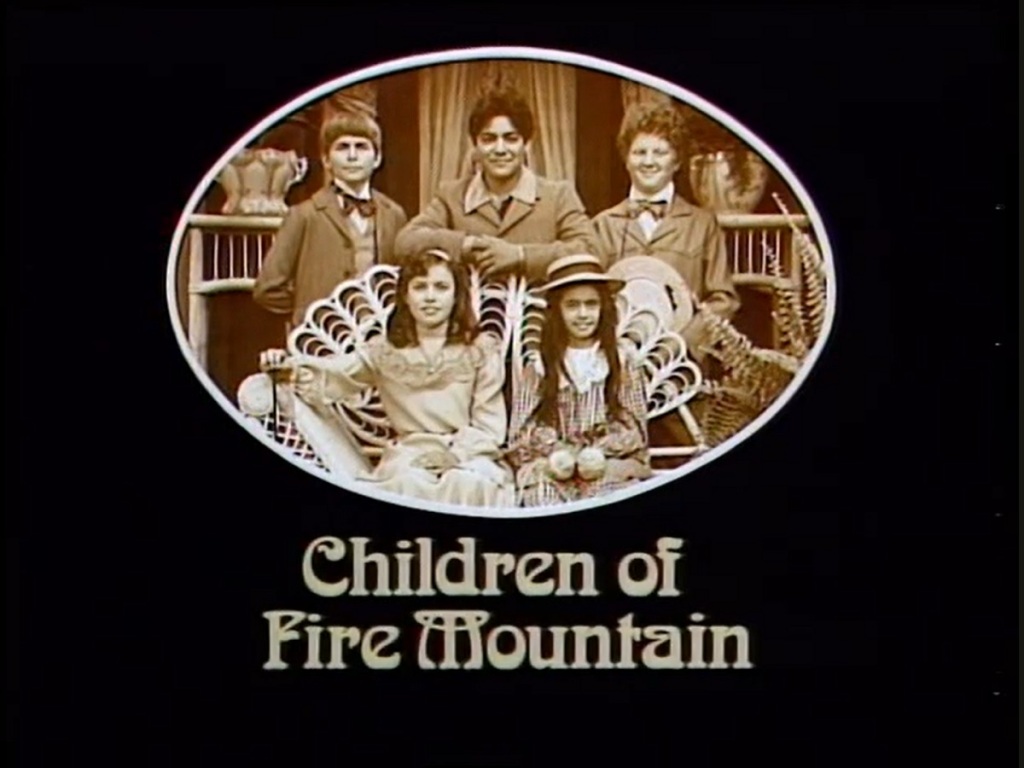
Plucky turn-of-the-century youngsters fall off bikes on their way to Sunday School while thwarting local businessman ‘Doomy’ Dwyer’s plot to sell outlawed ‘grog’ to Maoris and… something about a volcano.
Captain America (ABC, 1979)
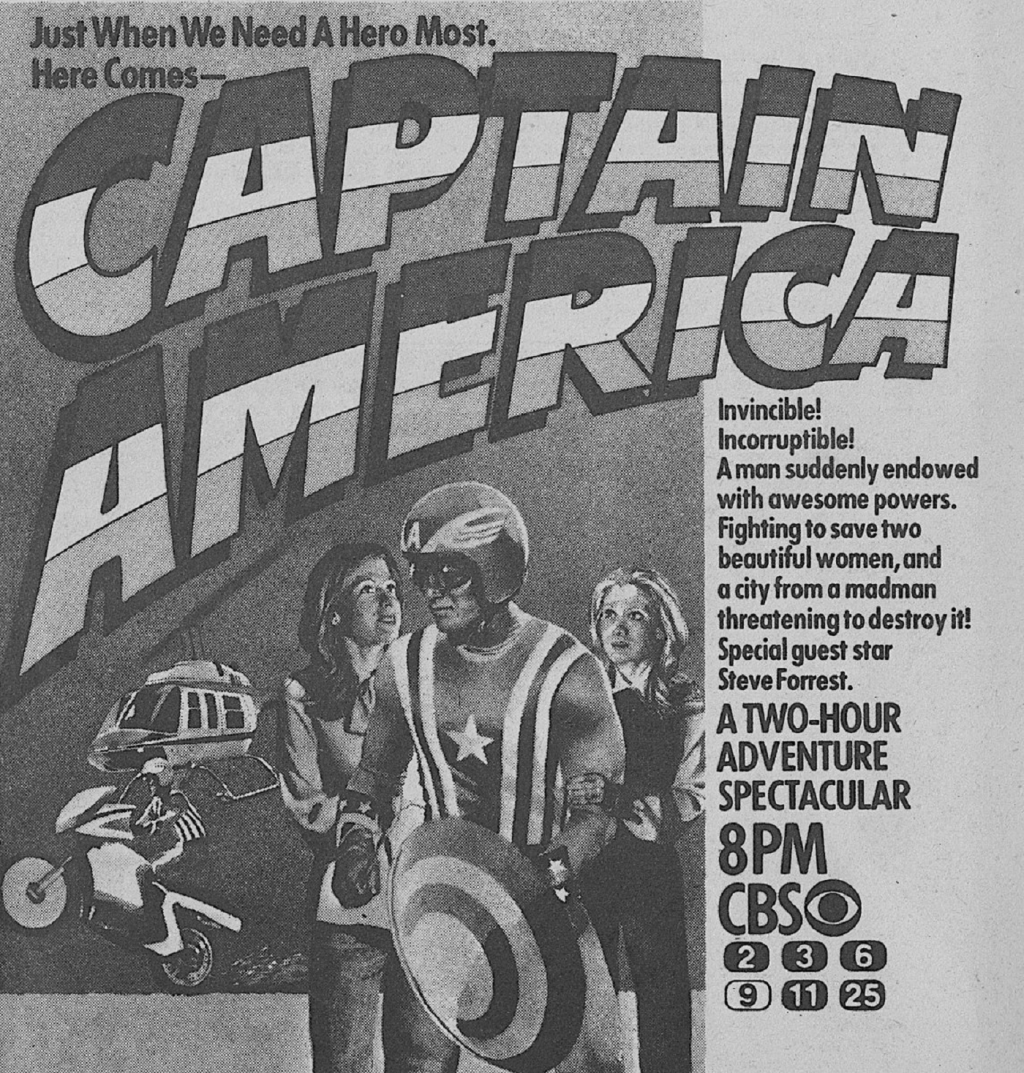
Evil Knievel-surfing putative Hulk/Spider-Man crossover recasting Steve Rogers as a descendent of the original Cap who takes a Super Soldier serum called FLAG, gets a computery van that a motorbike comes out of and… some things happen.
Gary Bainbridge took a look back at the rapidly-dashed excitement of the inevitable Bank Holiday outings for Captain America in It’s Good, Except It Sucks here.
Look And Read – The Boy From Space (BBC1, 1980)

Eerie literacy-skewed BBC Schools drama serial about a trapped alien boy with haunting Derek Griffiths/Radiophonic Workshop theme song, only very moderately undermined by interminable teaching bits with smug floating orange school swot thing ‘Wordy’.
Bibi Lynch took a look back at schooldays spent sitting cross-legged in the assembly hall pretending not to be scared by The Boy From Space in Looks Unfamiliar here.
Drak Pack (Hanna Barbera, 1980)

Teenage progeny of Dracula, Frankenstein’s Monster and ‘The’ Wolfman acquire Classic Horror powers via a modified high-five to outsmart The Organisation For Generally Rotten Enterprises (or O.G.R.E. for short).
Mark Thompson recalled ‘playing’ The Drak Pack at school – but declined to disclose who he was – in Looks Unfamiliar here.
The Adventure Game (BBC2, 1980-86)
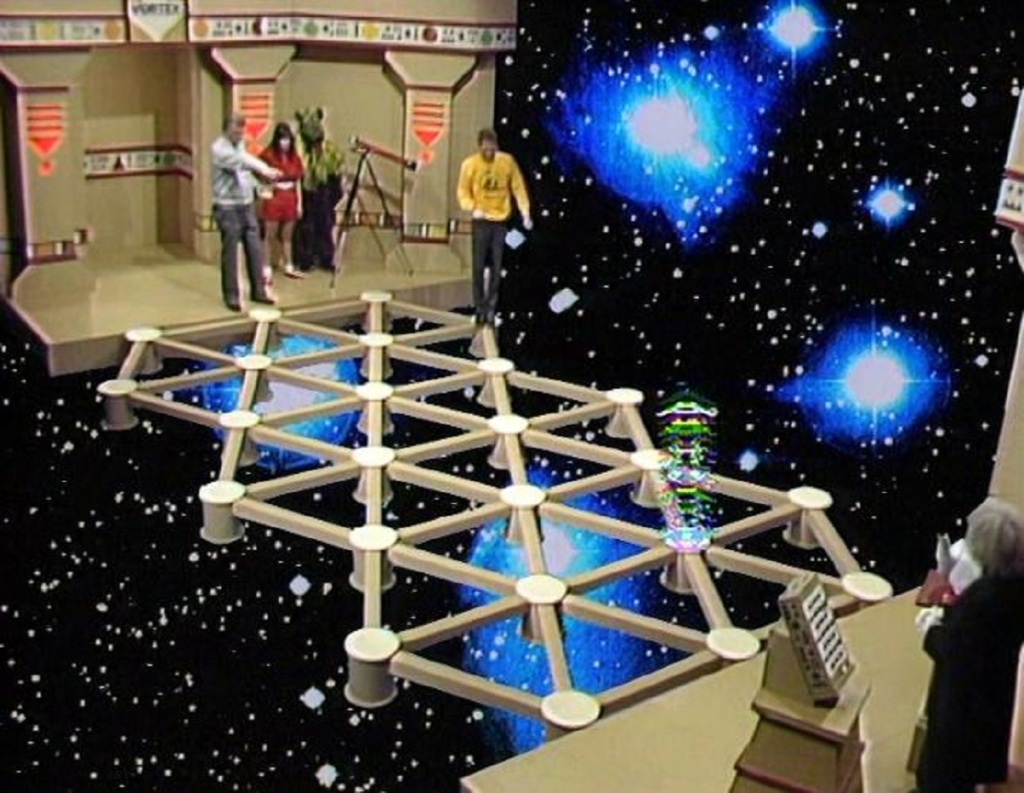
Post-Douglas Adams proto-ZX Spectrum text adventure game show taking Children’s BBC-adjacent celebrities through a series of reverse-talking outer space puzzles before the inevitable battle of gantry-based board game wits with ‘The Vortex’. Losing would necessitate them having to ‘walk’ home across space.
Punchlines! (ITV/LWT, 1981-84)
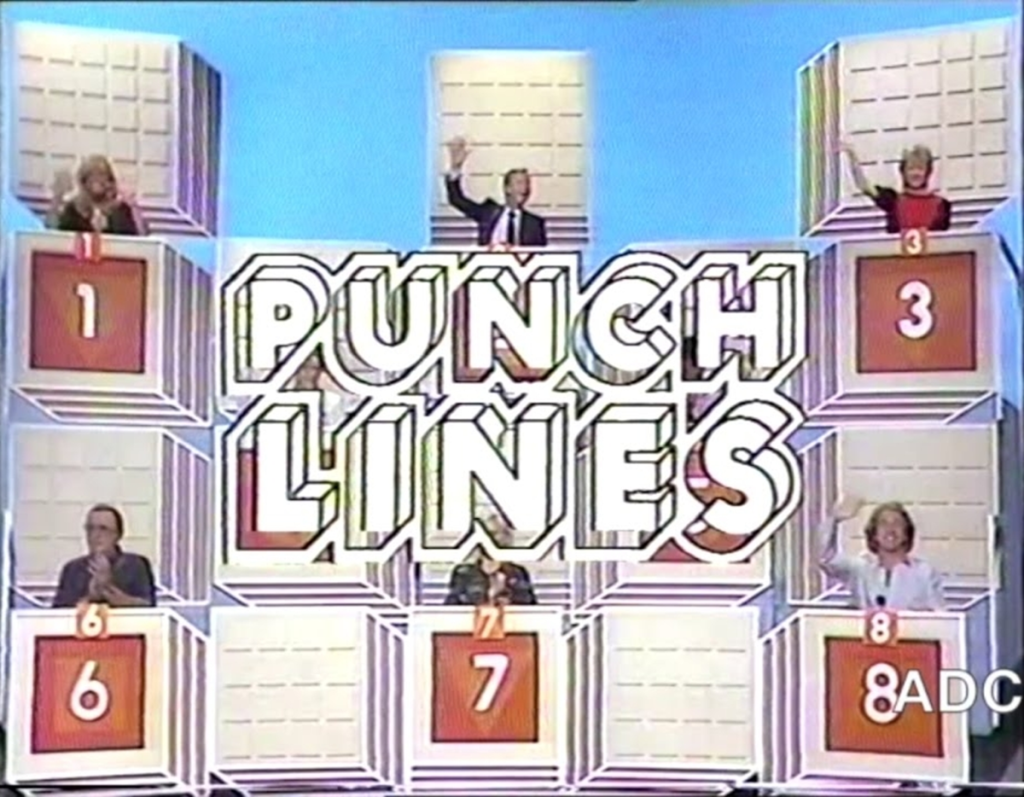
Lennie Bennett presides as contestants try to match up Tommy Cannon-level light entertainers with two halves of a gag, only the studio goes dark and they all run up and down stairs changing places for additional comedy value.
Educating Marmalade/Danger: Marmalade At Work (ITV/Thames, 1981-84)
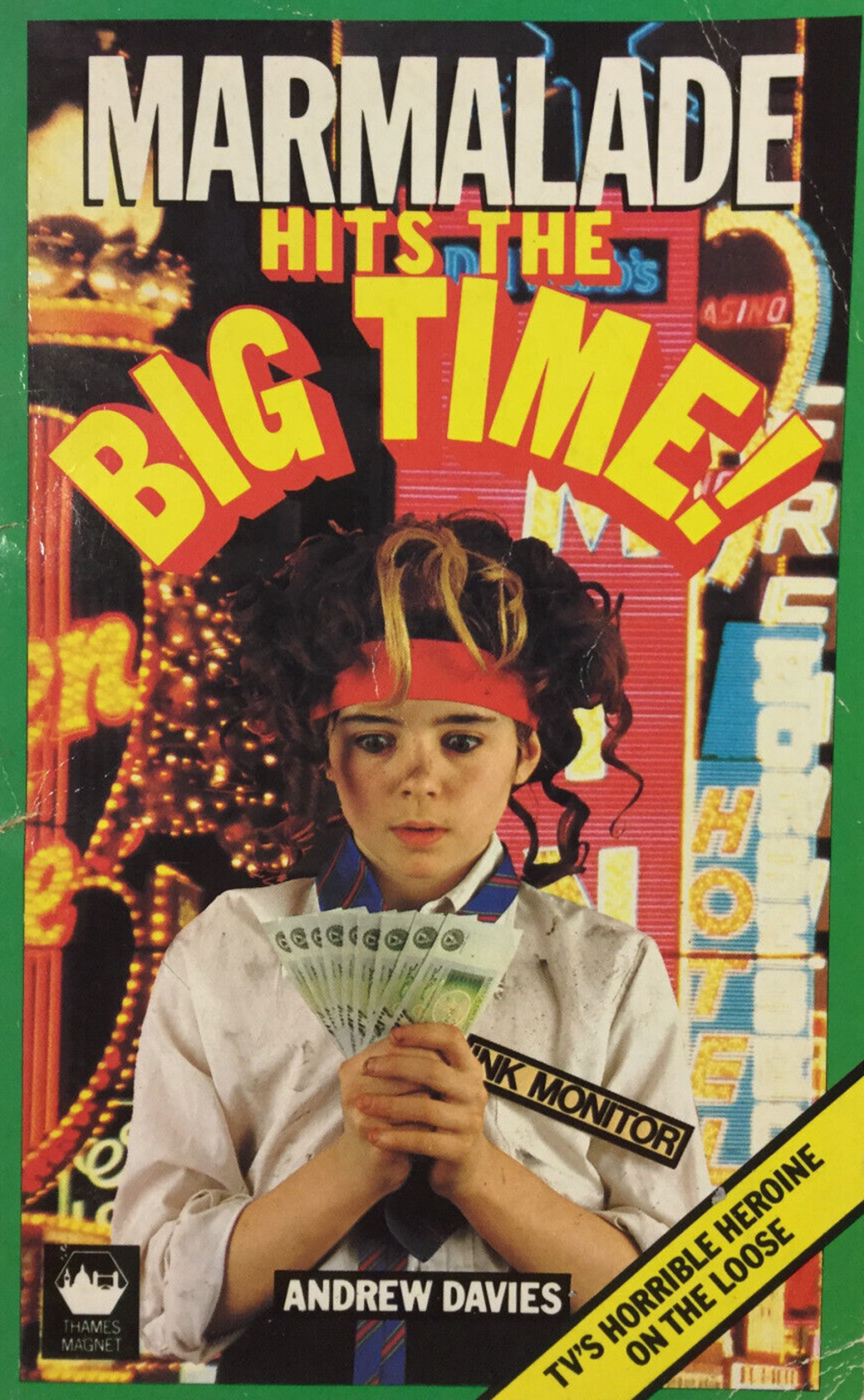
Post-punk classroom anarchy – complete with show-opening ‘BAD GIRL WARNING’ – charting the slang-flinging tearaway’s educational and workplace trajectory with suitably rowdy Bad Manners theme song.
Maggie (BBC2, 1981-82)
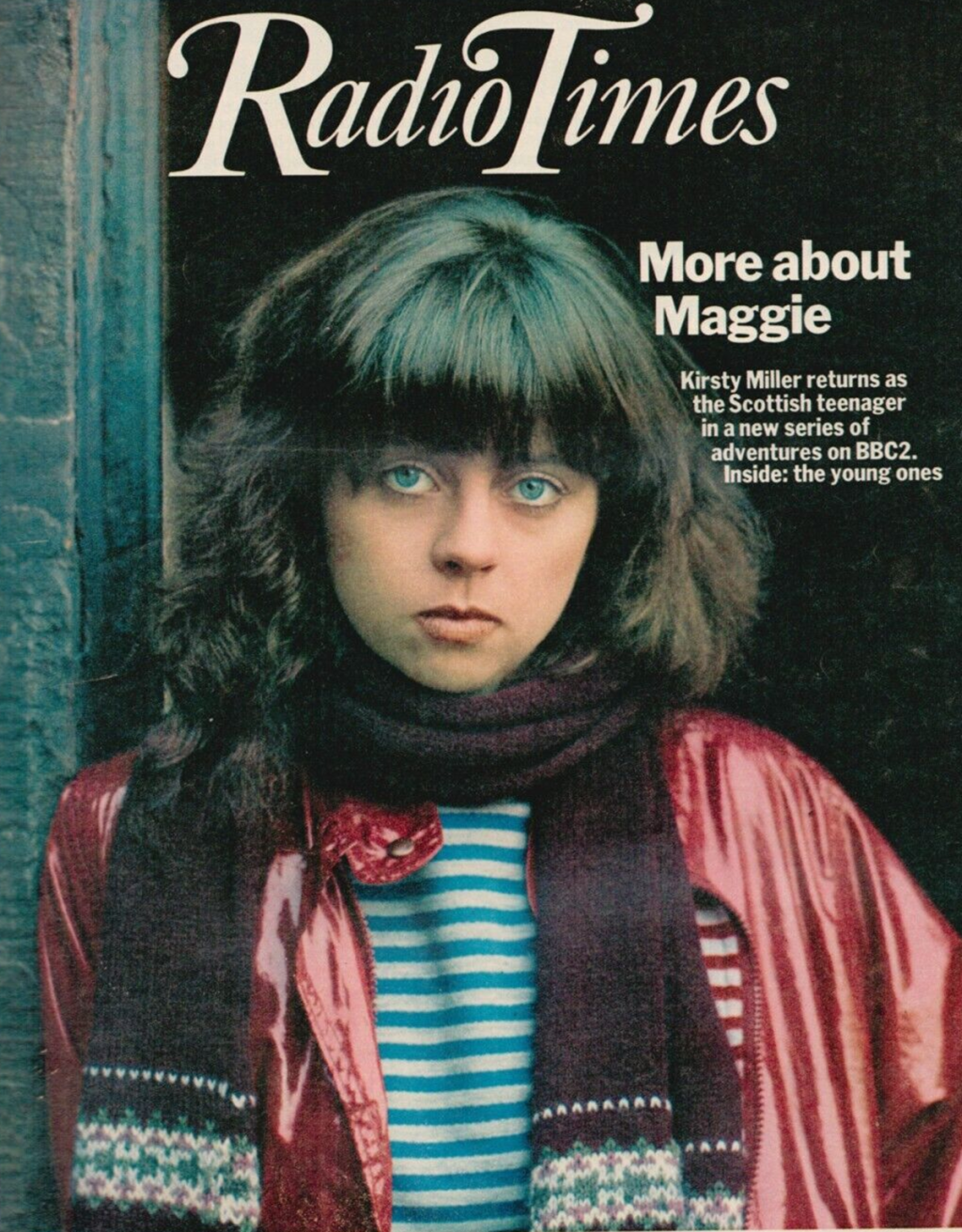
Early eighties as they come early evening Postcard Records-aligned feminist-leaning post-punk teen comedy drama starring Kirsty Miller as pointedly-named girl determined to go to university against her parents’ advice, equipped with modishly wordy B.A. Robertson theme song.
Buzzfax (BBC1, 1981)

‘Ceefax’ takes over Saturday Morning television in never repeated one-week-only virtual reality show-introducing experiment, setting interactive Radio Times -referencing puzzles and linking The Monkees, Battle Of The Planets and Edgar Kennedy with blocky renditions of Davy Jones and Keyop.
Chris Hughes spelt out exactly how memory-searing Buzzfax was – doubtless accompanied by Buzz setting a spelling puzzle – in Looks Unfamiliar here.
Stop-Go! (BBC1, 1981)
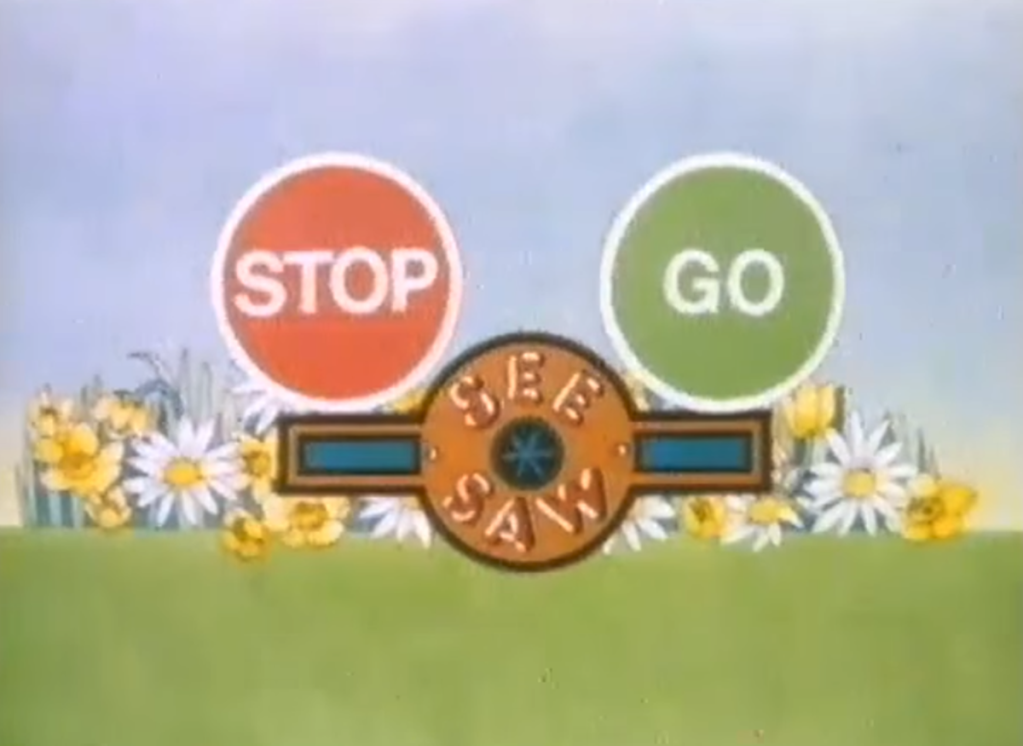
Mind-frazzling high-speed quick-cut child-skewed mini-documentaries about vehicles and machinery at work, shot on hallucinogenically processed film stock and fitted out with echo-saturated semi-urban sax-wailing soft-rock theme song.
You can find out just how intensely the Stop-Go! theme is burned into my subconscious in Looks Unfamiliar here.
Murphy’s Mob (ITV/Central, 1982-85)

Concrete and graffiti-covered day to day tribulations of gang of juvenile football supporters prone to accidentally disturbing car yard guard dogs in the Thatcher’s Britain Paul Weller tried to warn us about. No more mindless empty days!
Star Fleet (ITV/Fuji TV, 1982)

Redubbed Japanese puppet/suitmation hybrid following the wildly caricatured crew of X-Bomber and massive punchtastic red robot Dai-X in their fight against Commander Makara’s insecty forces, accompanied by off-the-scale hair metal theme song as later taken into the charts by Brian May and Eddie Van Halen.
There’s more about Star Fleet and its similarly overlooked space adventure substitutes in The Sci-Fi That Time Forgot here.
S.W.A.L.K. (Channel 4, 1982)
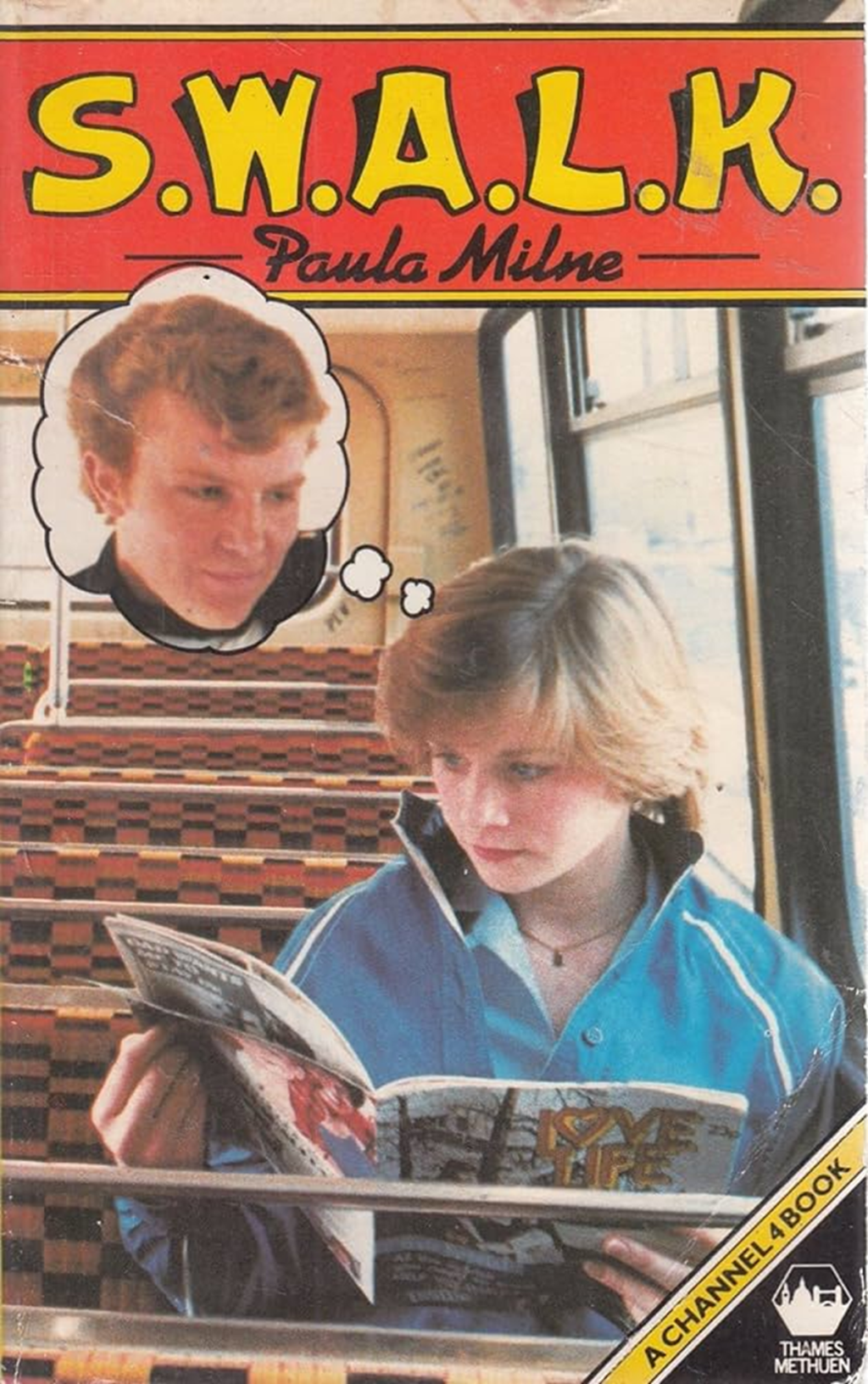
Just Seventeen-skewed New Romantic-adjacent teen comedy drama with stroppy sub-Altered Images theme song concerning awkward adolescent Amanda seeking advice from Prunella Scales as para-dimensional letters page letterhead ‘Aunt Patti’.
BMX Beat (ITV/Border, 1983-86)
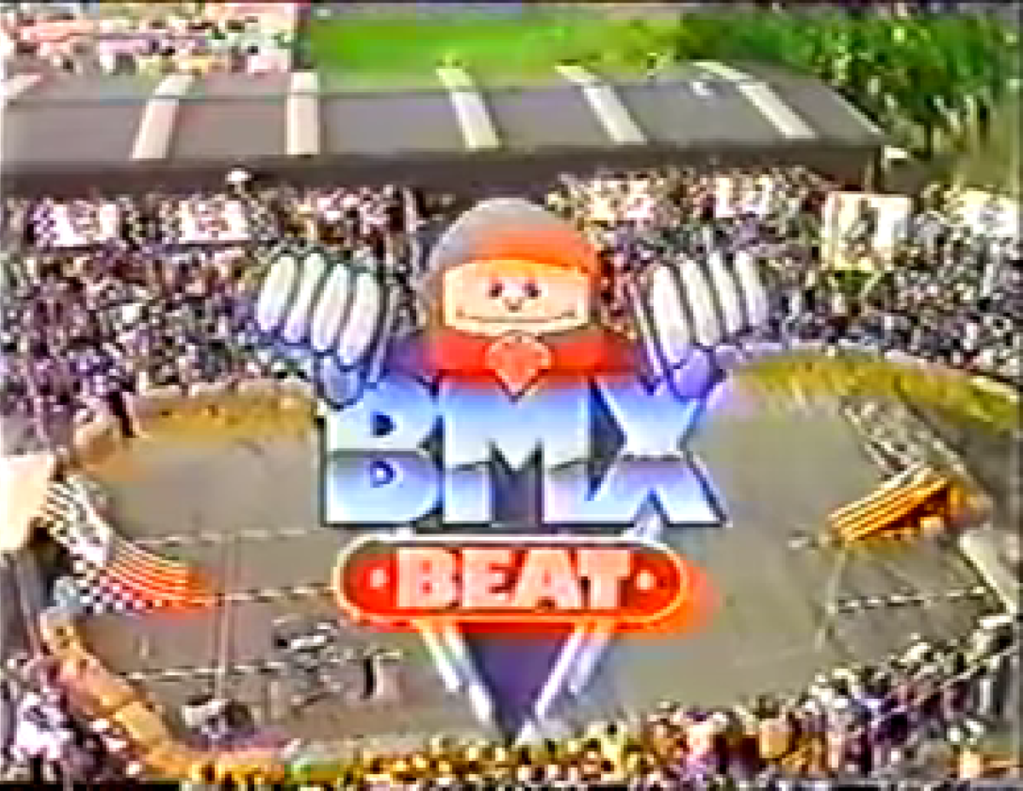
Cacophonous tailwhip-toting stunt-cycling showdown direct from Carlisle’s finest dirt tracks and leisure centres with electro-boogie theme bragging that “BMX boys have a lot of fun/riding a bike out in the sun”.
Grace Dent wistfully recalled her childhood crush on a BMX Beat champion in Looks Unfamiliar here.
Seaview (BBC1, 1983-85)
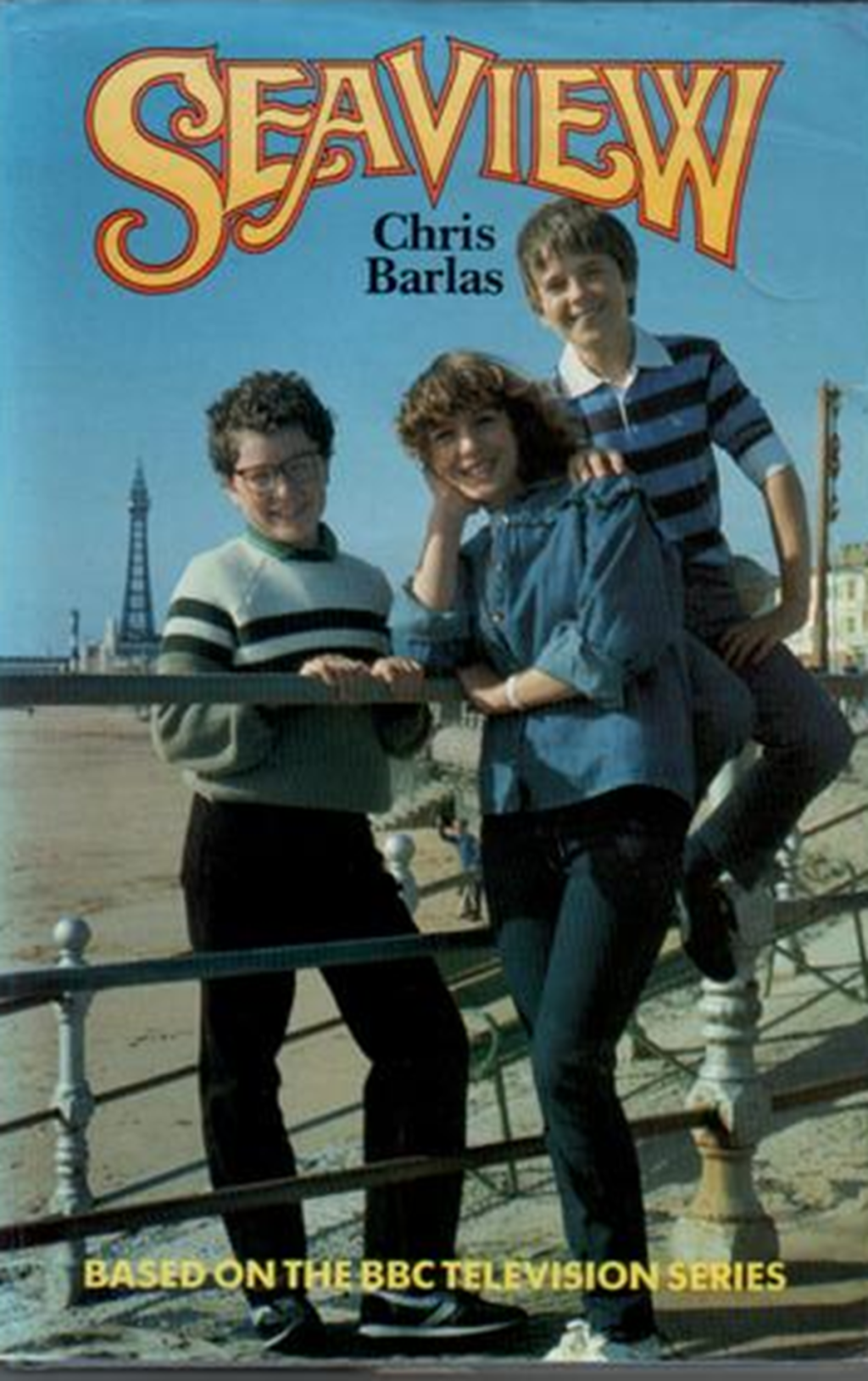
Relocated teen dreamer aspirant New Romantic Sandy and would-be genius younger brother George endure comic mishaps in new coastal town home with unlikely aid of local fruit machine-robbing type James. Comic strip-level moneymaking schemes abounded.
Bob Fischer had plenty to say about Seaview while he was supposed to be talking about Tucker’s Luck in Looks Unfamiliar here.
Highway (ITV/Tyne Tees, 1983-93)
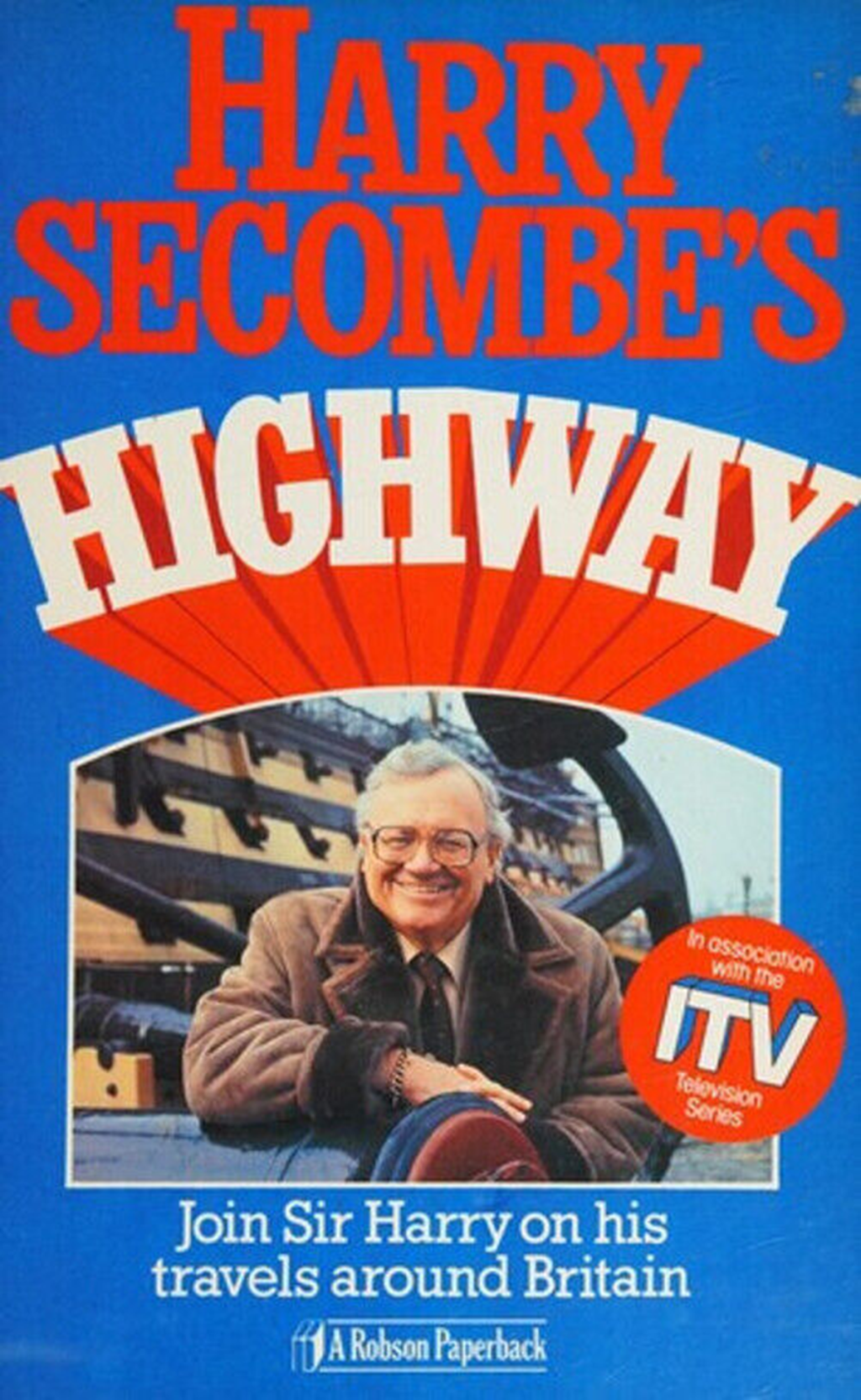
Sunday teatime spiritual reflection with scorching Kraftwerk-meet-church-organ theme as Harry Secombe traverses the UK serenading some blacksmiths from the bit in the middle of a dual carriageway about how God made the trees.
Ben Baker joined Sir Harry for a festive Highway ironmonger serenade in Looks Unfamiliar here.
Beat The Teacher (BBC1, 1984-88)
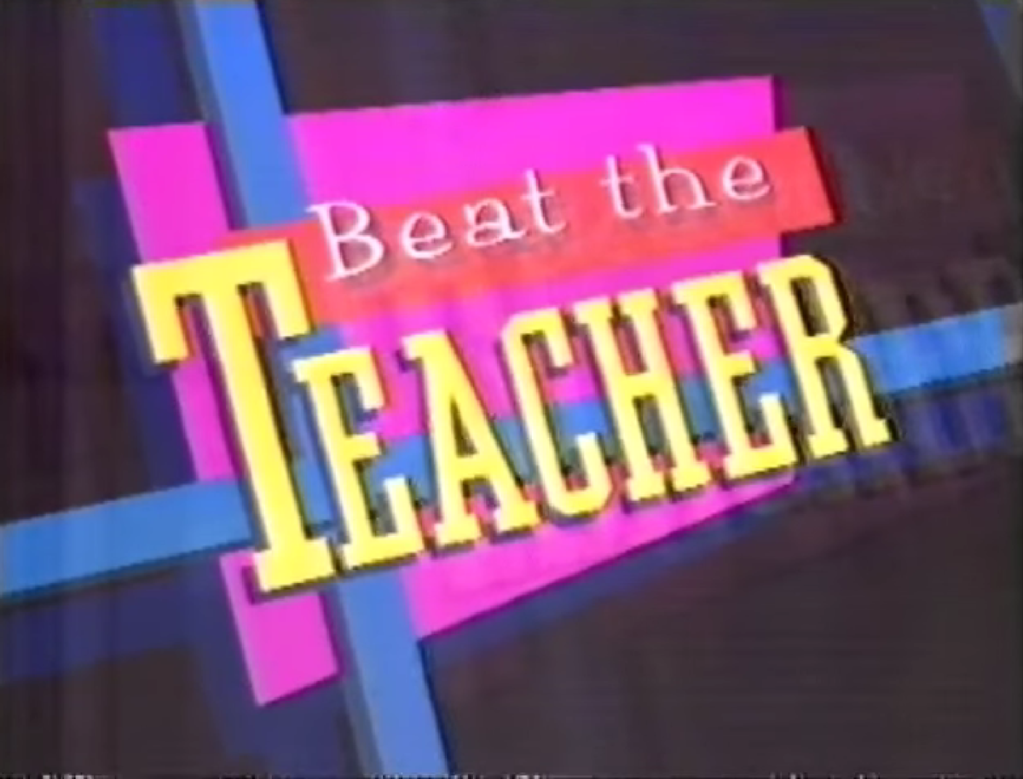
Extra School cunningly disguised as mild-mannered Pupils v. Staff quiz show involving class swot-friendly puzzles and variously hosted by Howard Stableford, Paul Jones and Bruno Brookes. A lost world in more ways than one.
Girls On Top (ITV/Central, 1985-86)

Alternative Comedy goes pre-watershed with the wild flatsharing antics of Dawn French’s militant feminist Amanda, Jennifer Saunders’ spaced-out Jennifer, Ruby Wax’s brash careerist Shelley and Tracey Ullman’s aspirant tabloid celeb Candice. Thanks for dropping by!
You can find the whole strange story behind Girls On Top in Thanks For Dropping By here.
Alias The Jester (ITV/Thames, 1985)

High-concept post-Danger Mouse Cosgrove Hall misfire about a time-travelling spacemen trapped in the middle ages and posing as a superpowered jester, with a brilliantly over-explaining theme song by one of Herman’s Hermits.
Al Kennedy explained how he got stuck in Alias The Jester‘s magnetic hold in Looks Unfamiliar here.
Telly Addicts (BBC1, 1985-98)

Noel Edmonds wields the ‘hoofer doofer’ as two families battle it out over Autumnal archive clip-driven rounds including Guess Who?, Sing The Sig and The Props Bag with never-explained fifties stylings and scrawly ‘reveal’ font.
You can find an all-star attempt at playing the Telly Addicts DVD Game – yes there really was one – in Looks Unfamiliar here.
Droids (CBS, 1985-86)

R2D2 and C3P0’s soft rock-soundtracked animated Anthony Daniels-voiced escapades set during the lead-up to the first Star Wars movie, taking in run-ins with IG-88 and Boba Fett. Now officially not ‘canon’ according to bores.
Phil Catterall recalled the non-canonical joys of getting up first thing on a Saturday for Droids in Looks Unfamiliar here.
Five To Eleven (BBC1, 1986-90)

Panpipe-heralded mid-morning filler ‘contemplative’ slot with sombre thespians reading out quasi-spiritual prose and poetry designed to make viewers reflect on the beauty of flowers and the ugliness of industrial waste.
Deborah Tracey tried to convey just how much of a downer Five To Eleven really wasin suitably poetic terms in Looks Unfamiliar here.
Hot Metal (ITV/LWT, 1986-88)
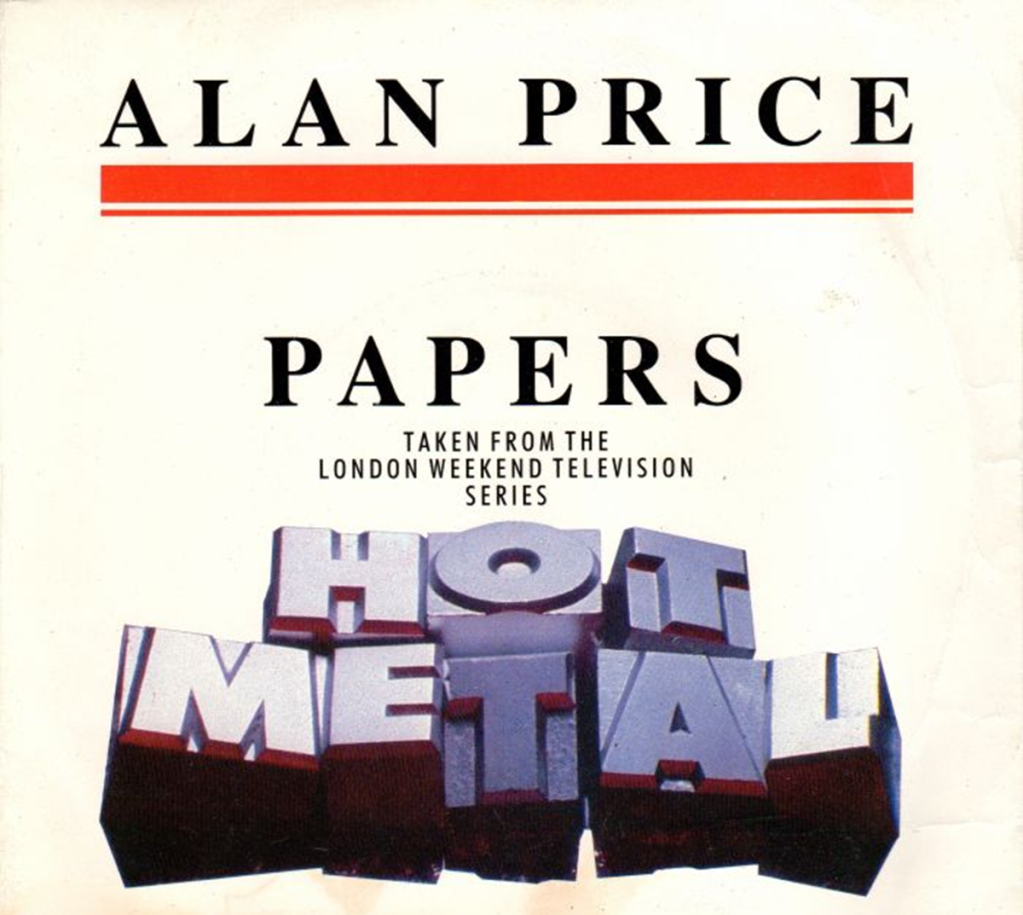
Scorching Sunday Night attack on the excesses of eighties tabloids as the hard left Daily Crucible is bought by a tory press baron and thrown headline-first into wild escalating scandals involving Princess Diana, Kruschev and werewolves.
Defenders Of The Earth (King Features/Marvel, 1986)
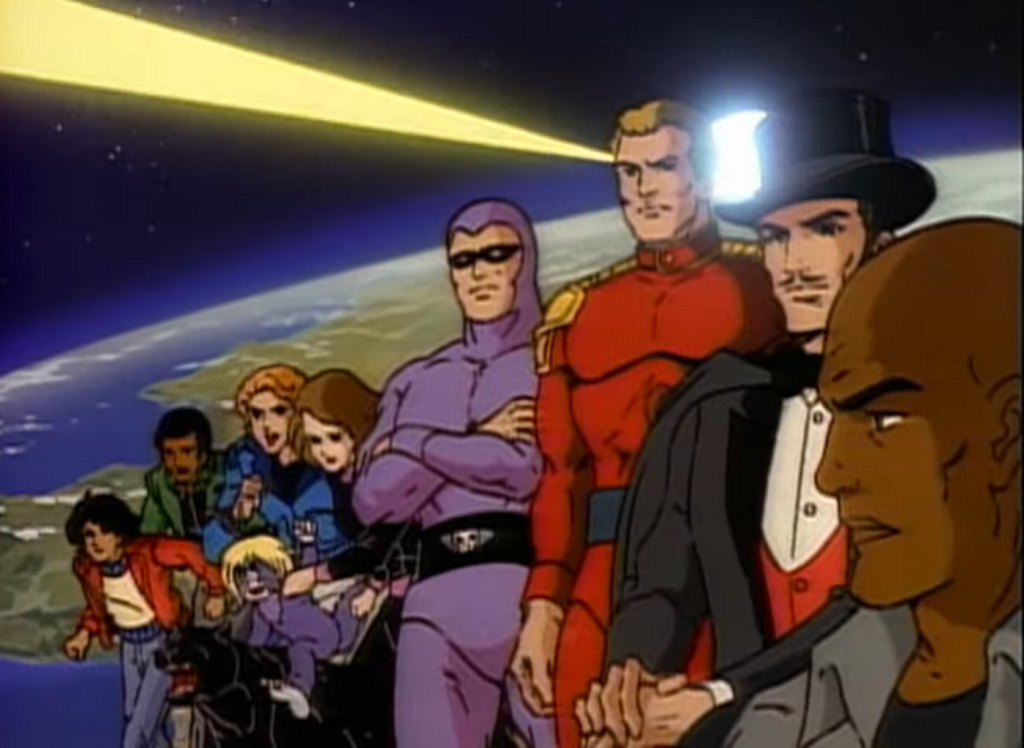
Copyright-sidestepping newspaper strip characters Flash Gordon, Mandrake The Magician, The Phantom and Lothar – who was, crucially, ‘armed with his powers’ – team up to, well, defend the Earth, usually from Ming The Merciless.
Katy Brent jetted into battle flying faster than light for a chat about Defenders Of The Earth in Looks Unfamiliar here.
Every Second Counts (BBC1, 1986-93)
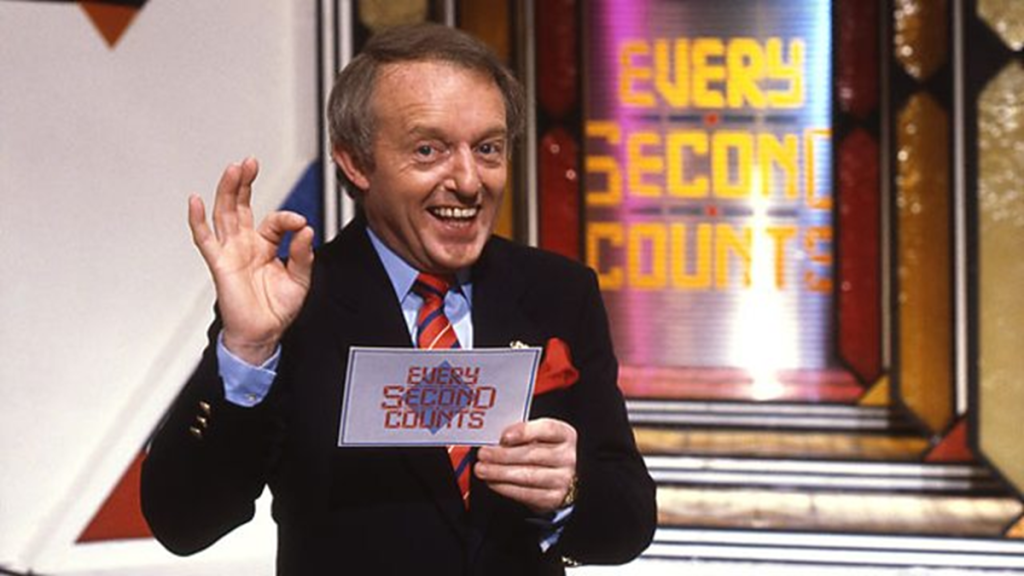
Paul Daniels poses incredibly simple questions, usually giving a very heavy hint of the answer, and contestants remain resolutely silent as a descending timer beeps down towards a big showbizzy brash flourish.
Pulaski (BBC1, 1987)
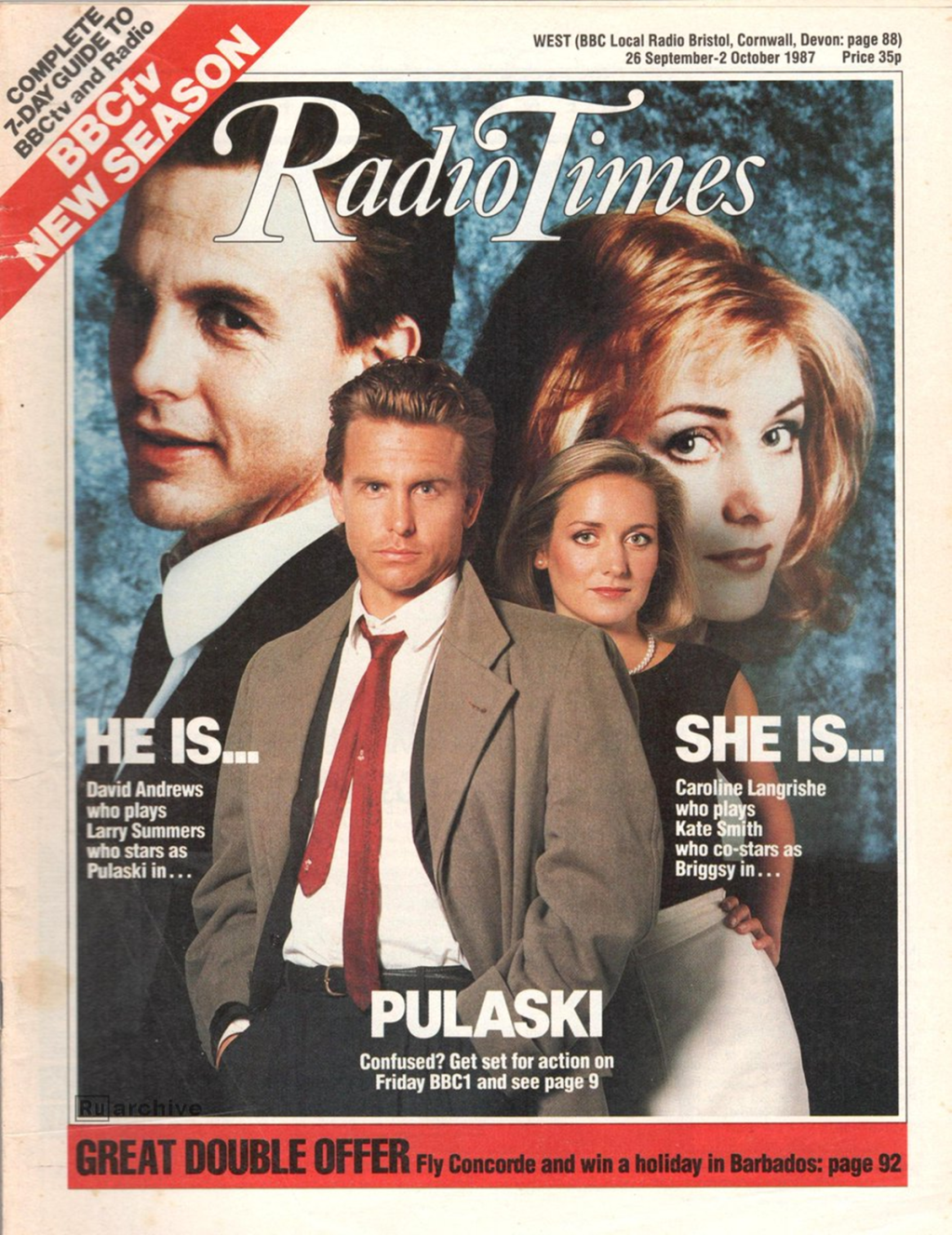
Ahead of the curve metanarrative shenanigans about an actor that everyone thinks is a detective except he isn’t… or is he?, with theme music by The Shadows and created and written by the man behind Last Of The Summer Wine. No, really.
Stoppit And Tidyup (BBC1, 1987)

Terry Wogan-narrated animated honking gonks conceived as Keep Britain Tidy mascots convey subtle messages about the importance of early nights and cleaning your teeth via the medium of loud noises delivered directly to camera.
Lydia Mizon explained why she wasn’t exactly keen on Stoppit And Tidyup in Looks Unfamiliar here.
Rockliffe’s Babies (BBC1, 1987-88)

Good honest Thatcher’s Britain inner-city copperin’ with an alarming theme song featuring ‘street kids’ roaring nursery rhymes rewritten with ‘villain’ slang over shrieking saxophones. Spinoff based around genial commanding officer in new rural surroundings bombed.
Aliens In The Family (BBC1, 1987)
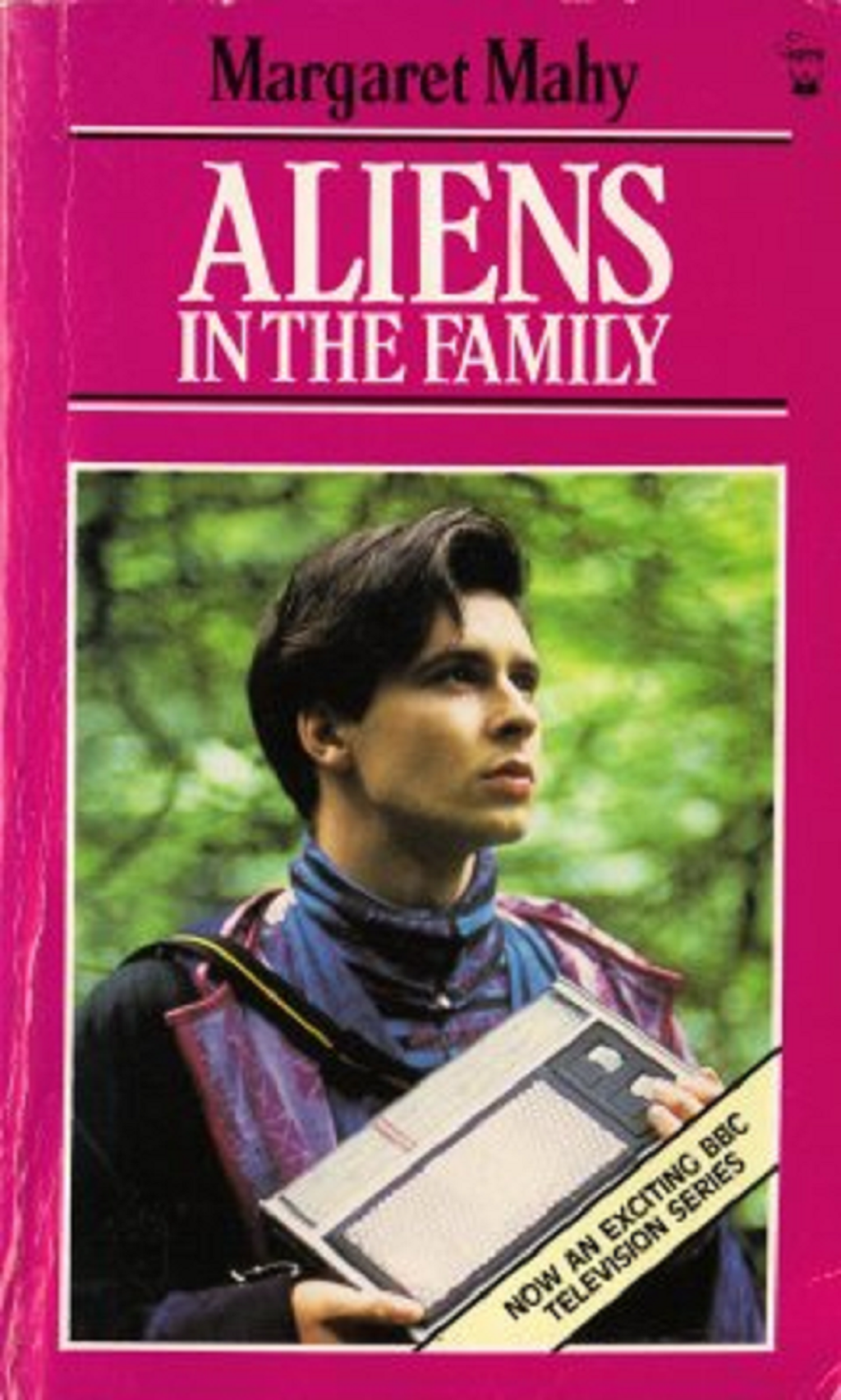
Warring children of remarrying divorcees put aside their differences to assist Just Seventeen model-type alien Bond in his quest to escape The Wirdegens, with Morten Harket references and adolescent ‘issues’ thrown in to give a sense of modernity.
Aliens In The Family was just one of a series of spooky run-up-to-Christmas serials broadcast by Children’s BBC in the seventies and eighties, and you can find more about the rest of them in Ghosts, Monsters And Legends (And Tennis Prodigies) here.
Interceptor (ITV/Thames, 1989)
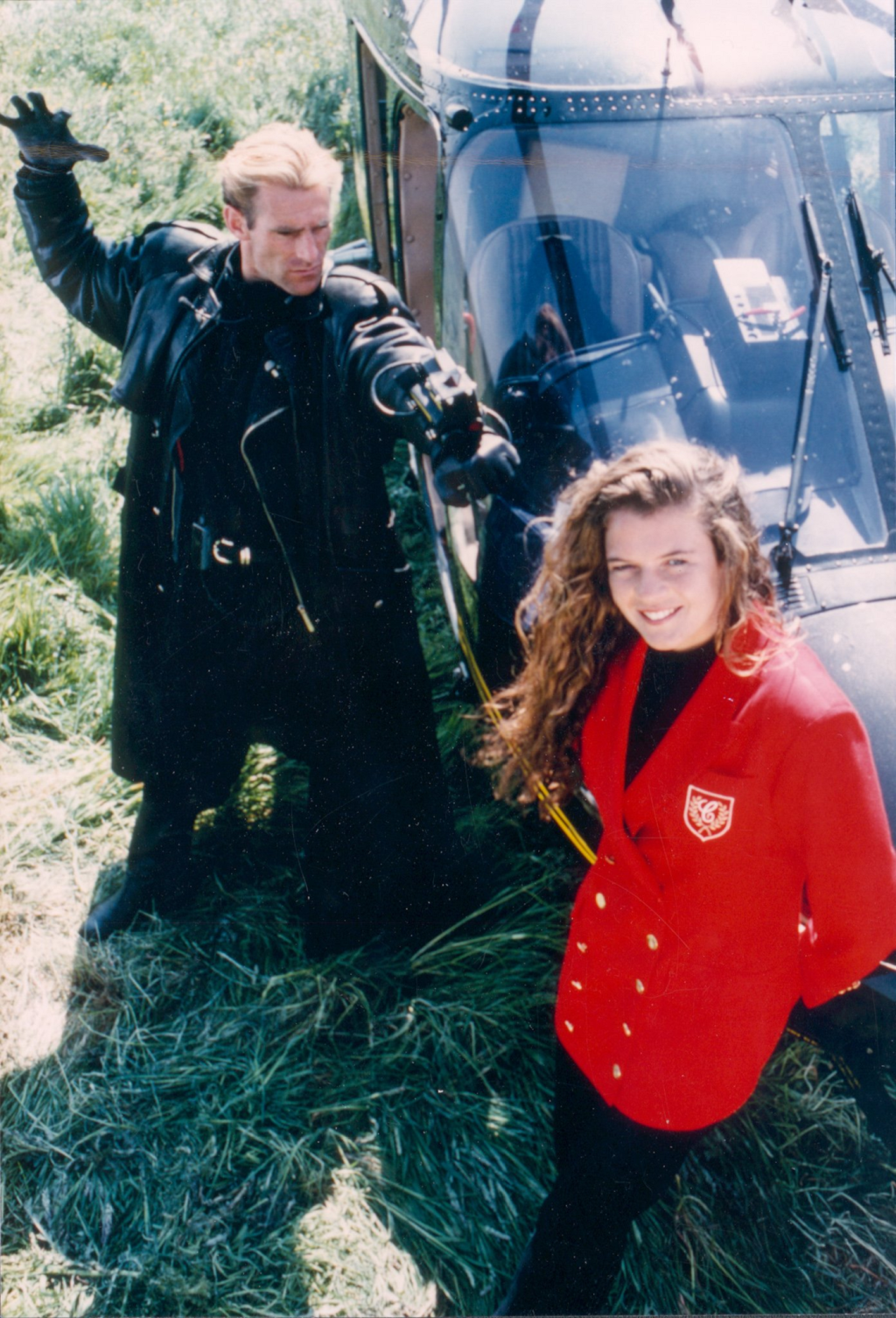
High concept Treasure Hunt spinoff featuring Anneka Rice’s maternity stand-in Annabel Croft guiding contestants with backpacks across the countryside while Video Nasties-esque man in black The Interceptor and helicopter pilot ‘Mikey’ attempt to track them down and Laser Quest zap them out of the game.
Lucy Pope donned her backpack for a chat about ‘playing’ Interceptor at school in Looks Unfamiliar here.
Summer Dreams: The Story Of The Beach Boys (ABC, 1990)
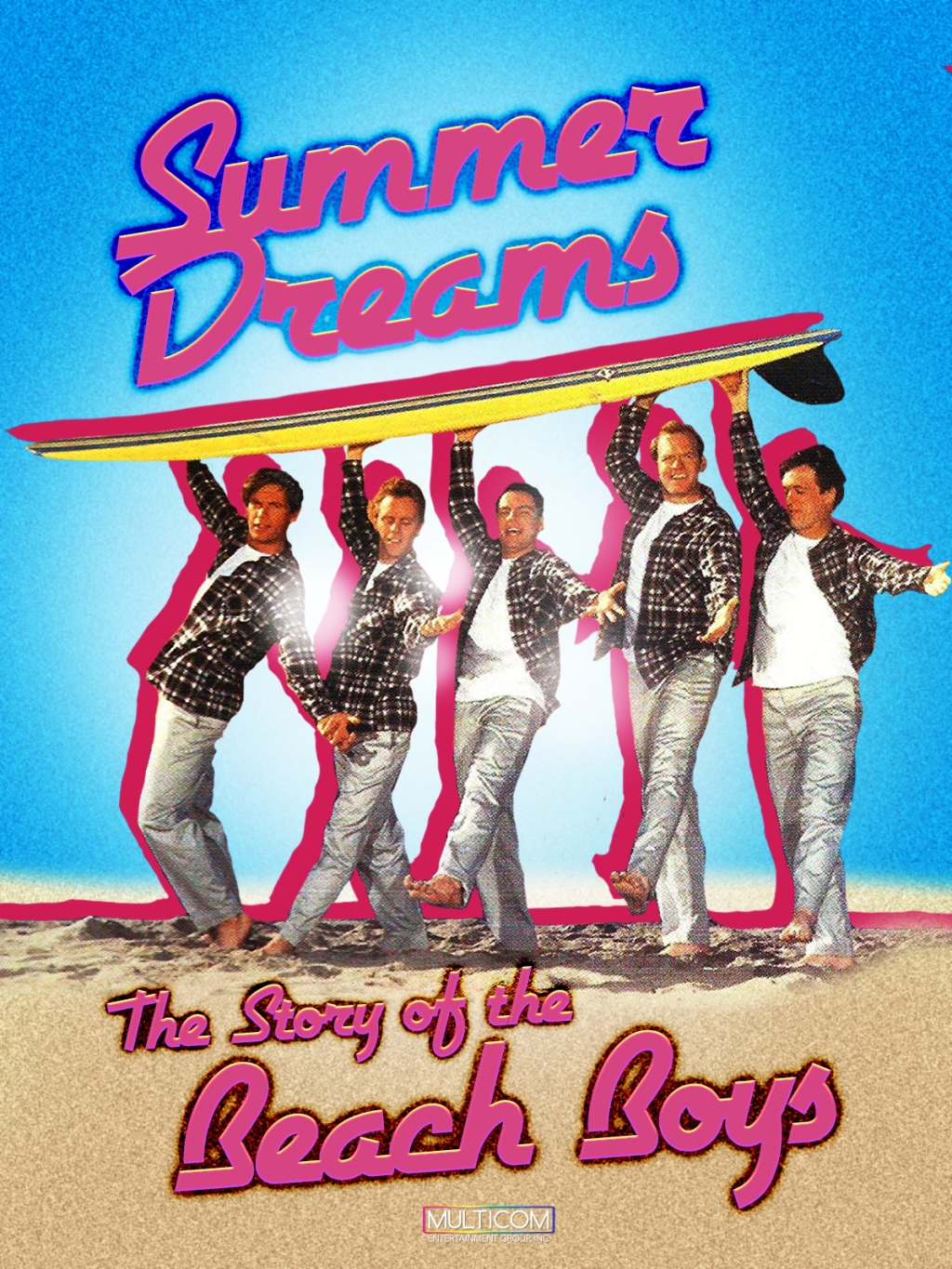
Unauthorised biopic melodrama with Brian, Al, Mike, Dennis, Bruce and Carl writing California Girls on ‘drugs’, ‘meeting’ Charles Manson, and representing the entire SMiLE saga by frowning at some tapes.
You can find a slightly more in-depth look at the whole SMiLE saga – and why it might actually have been more interesting before someone put it all together – in All Fall Down And Lost In The Mystery here.
The 8:15 From Manchester (BBC1, 1990-91)
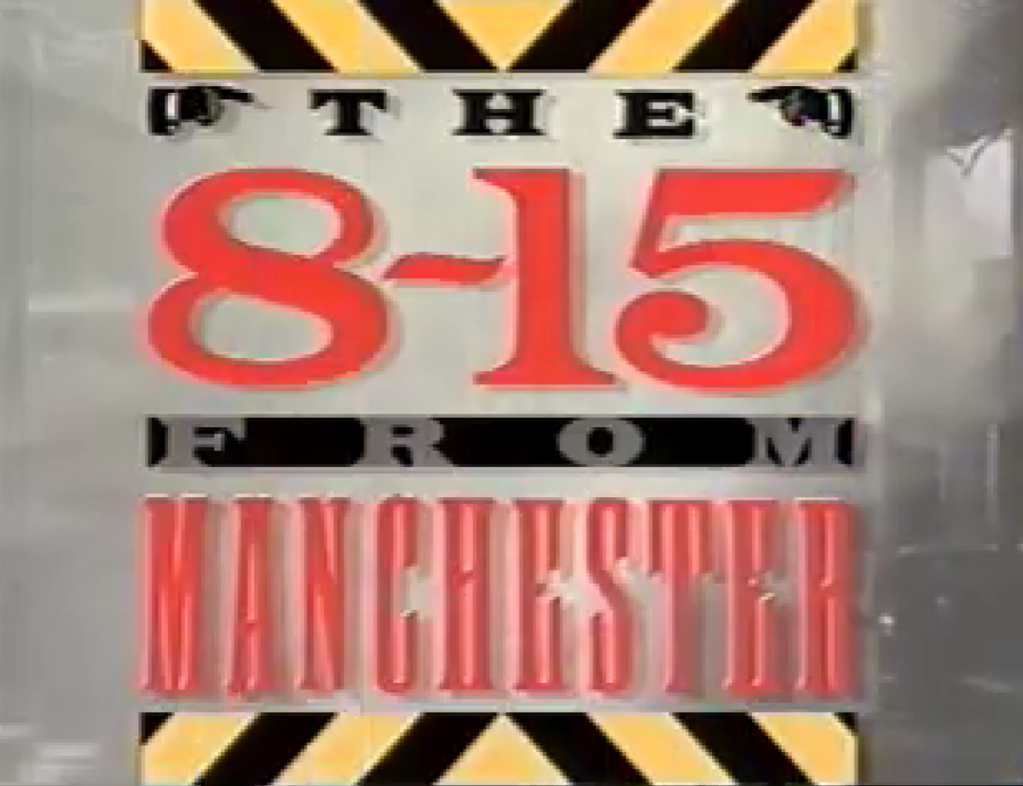
Atypically hip Madchester-surfing Saturday Morning show – complete with Inspiral Carpets theme tune – set in a Hacienda-esque studio with teen dilemma inserts starring a young Anna Friel and cartoon antics from ‘Rude Dog’.
A Life In Pieces (BBC2, 1990)
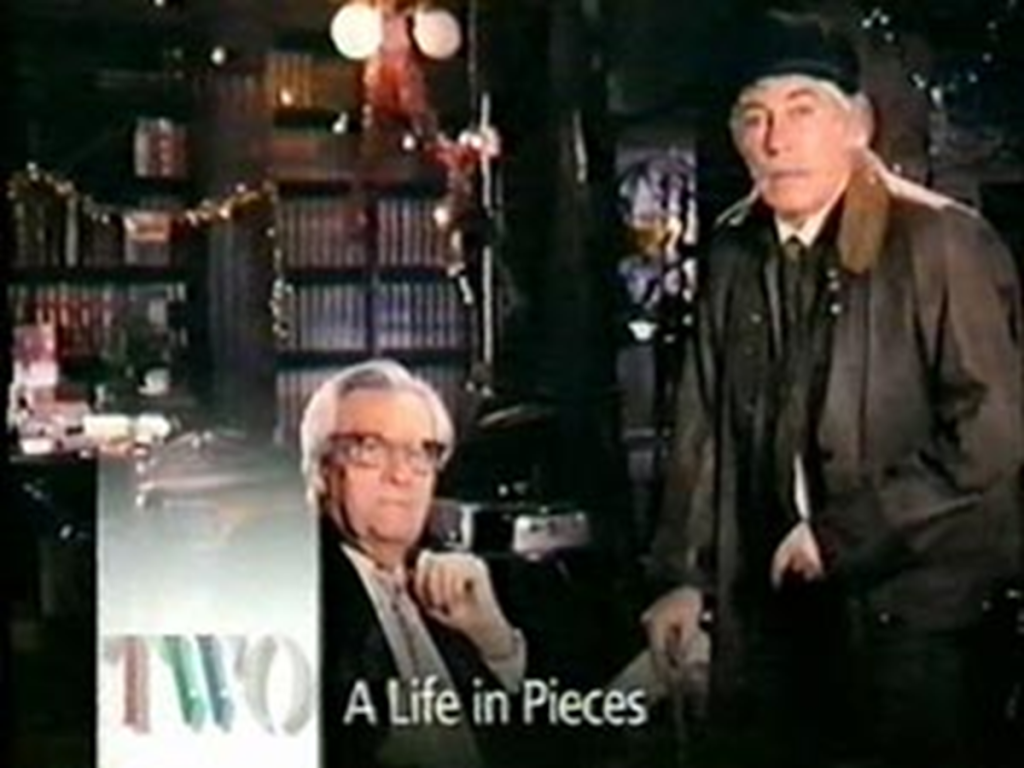
Sir Arthur Streeb-Greebling – bearing an uncanny resemblance to Peter Cook – chats with Ludovic Kennedy about his role in inspiring, procuring and generally wreaking havoc with each of the featured gifts in The Twelve Days Of Christmas.
A Life In Pieces proved to be the gift that kept on giving when it evolved into Peter Cook’s chats with Chris Morris in Why Bother?, which you can hear more about in Looks Unfamiliar here.
Friday At The Dome (Channel 4, 1991)
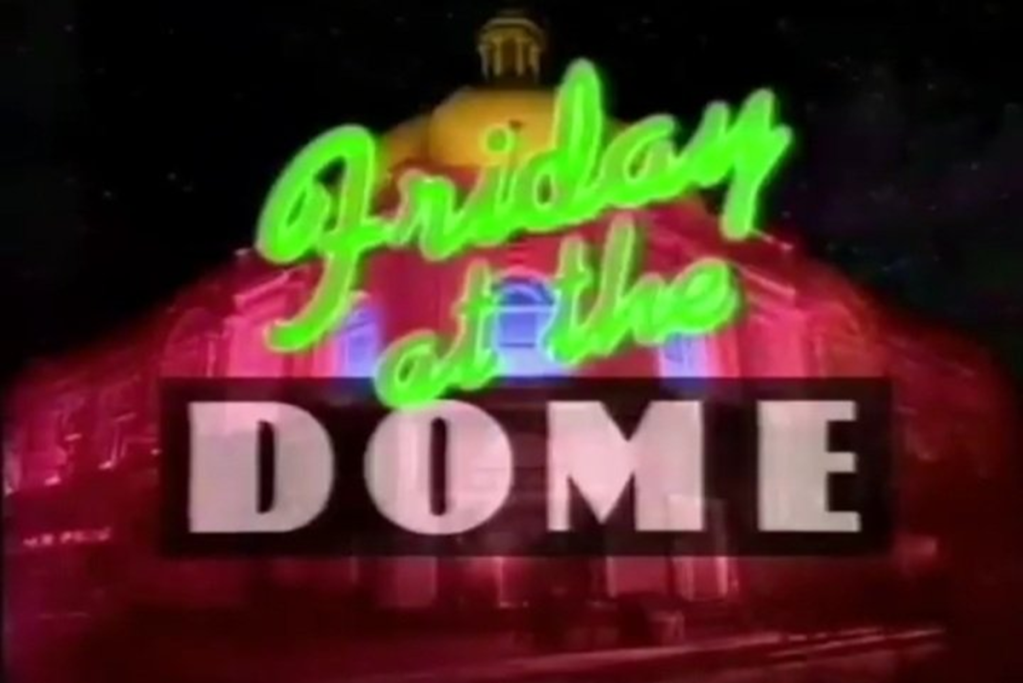
Hotly-tipped indie bands and Q-favoured ‘quality’ types awkwardly rub shoulders for ‘live music is back!’ showcase in a big echoey venue with affable Bloke At Gig style presenters. Lenny Kravitz swore and walked out.
TV Mayhem (ITV/TV-am, 1991)

Prehistoric Big Breakfast ancestry as a pre-fame Chris Evans tries to prop up an ailing TV-am with his own invariably self-centric brand of Saturday Morning on-screen anarchy. They lost their ITV franchise shortly afterwards.
Ben Baker recalled what it was like to witness that all too brief outbreak of TV Mayhem on Looks Unfamiliar here.
Parallel 9 (BBC1, 1992-94)
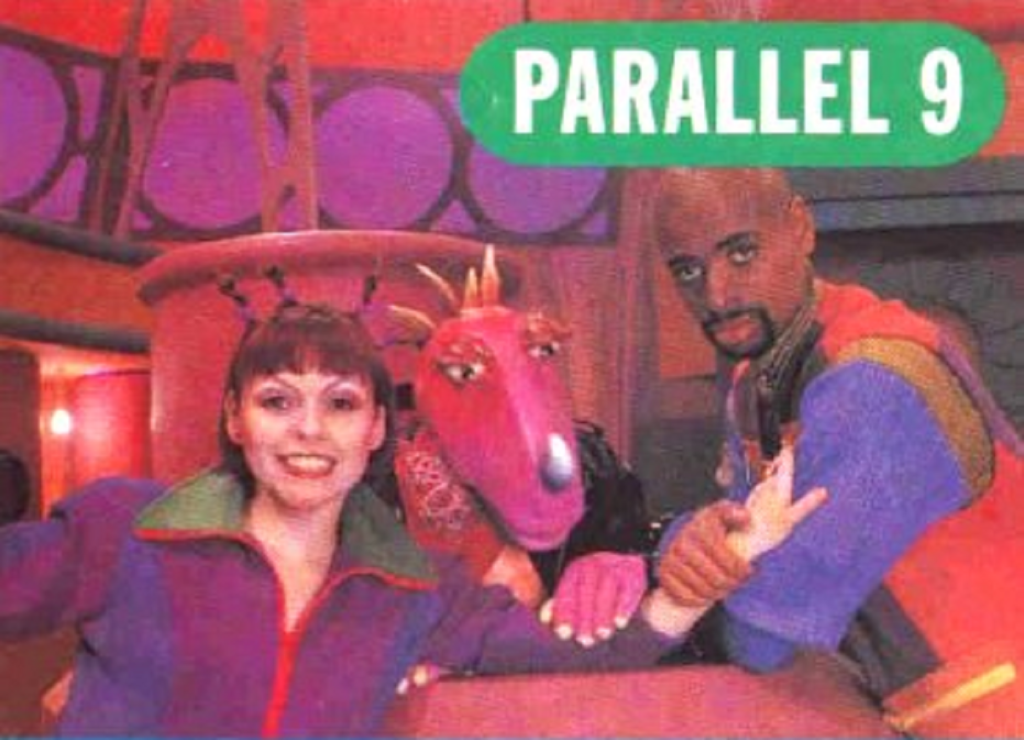
High concept Saturday Morning magazine show with a slightly dubious ‘Space Prison’ narrative theme and a look halfway between Red Dwarf and a Betty Boo video, overseen by not at all Nobby The Sheep-‘borrowing’ anchor Brian The Dinosaur.
Gabby Hutchinson Crouch took a look back to the excitement of getting up early on a Saturday morning for Parallel 9 – with some reservations about the possibility of encountering ‘Time Yewtrees’ – in Looks Unfamiliar here.
Without Walls: Forbidden Fruit (Channel 4, 1993)
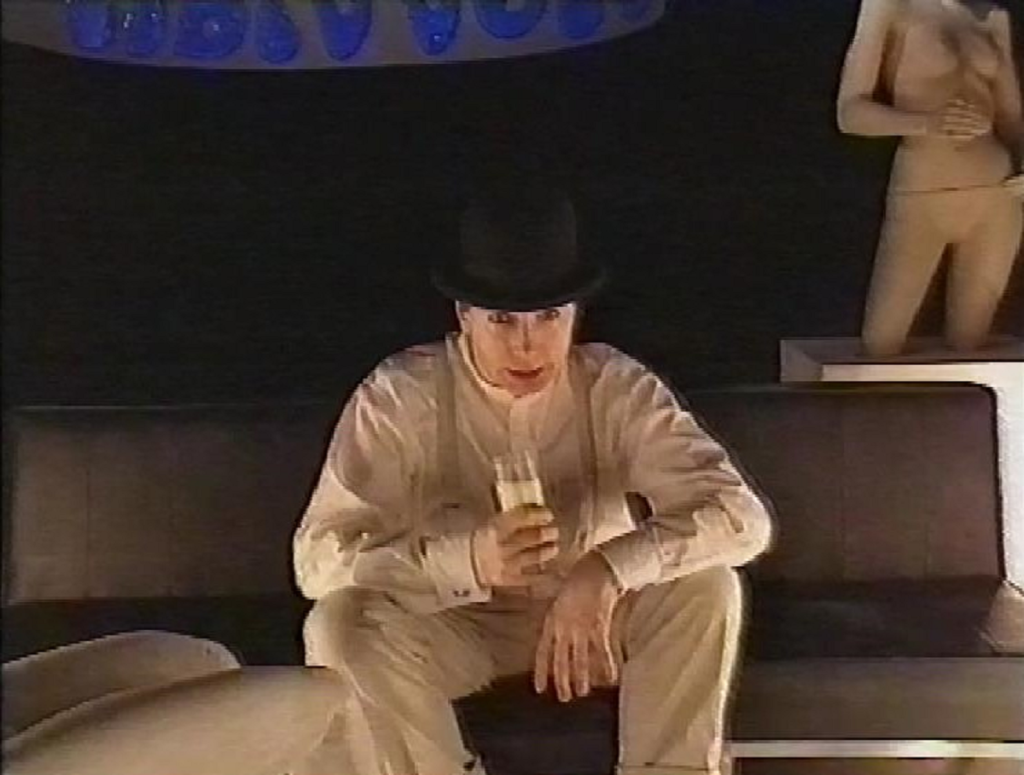
Tony Parsons says aaaaaahhhh a lot in a bid to overturn the UK-wide withdrawal of A Clockwork Orange from cinematic distribution. Stanley Kubrick says no not aaaahhhh and attempts to have the documentary withdrawn too.
Meanwhile, you can find the full story of how I didn’t see A Clockwork Orange in 1993 in Do Not Viddy This, My Brothers! here.
Full Stretch (ITV/Meridian, 1993)
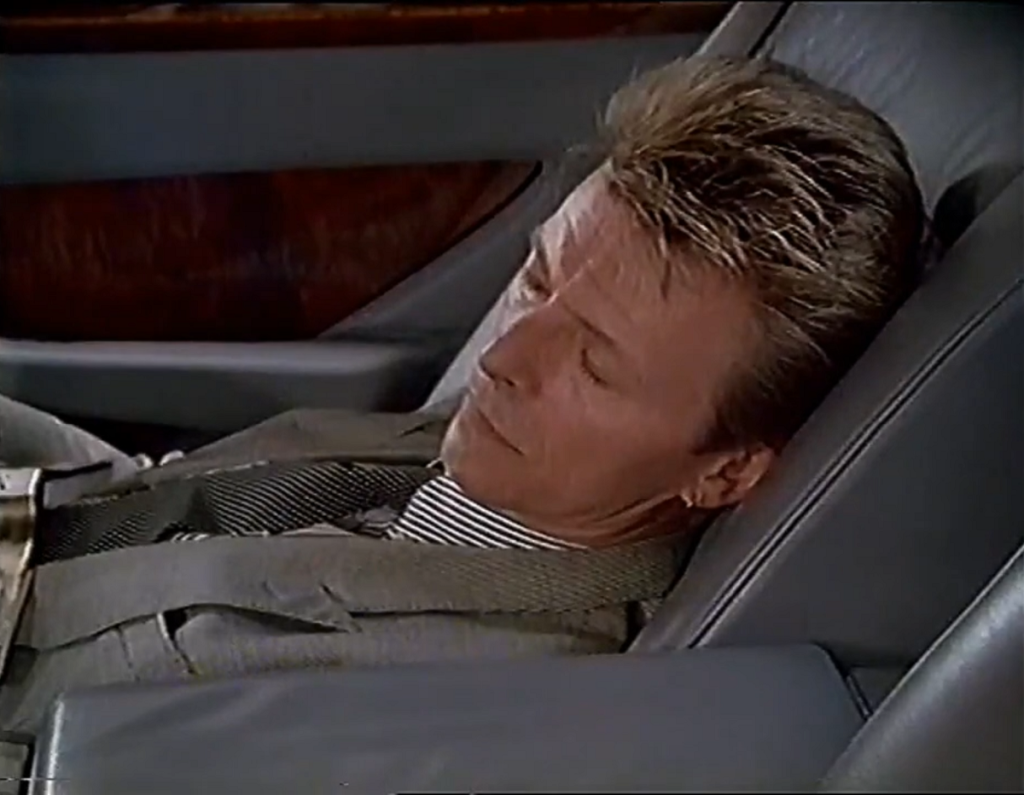
Non-starting Dick Clement and Ian Le Frenais comedy drama about an ex-footballer opening a limo hire firm, featuring an almost entirely forgotten guest appearance by David Bowie as a passenger. Yes he does steal every frame.
David Smith took a look at David Bowie’s even more unexpected appearance in teen comedy movie Bandslam in Looks Unfamiliar here.
If You See God, Tell Him (BBC1, 1993)
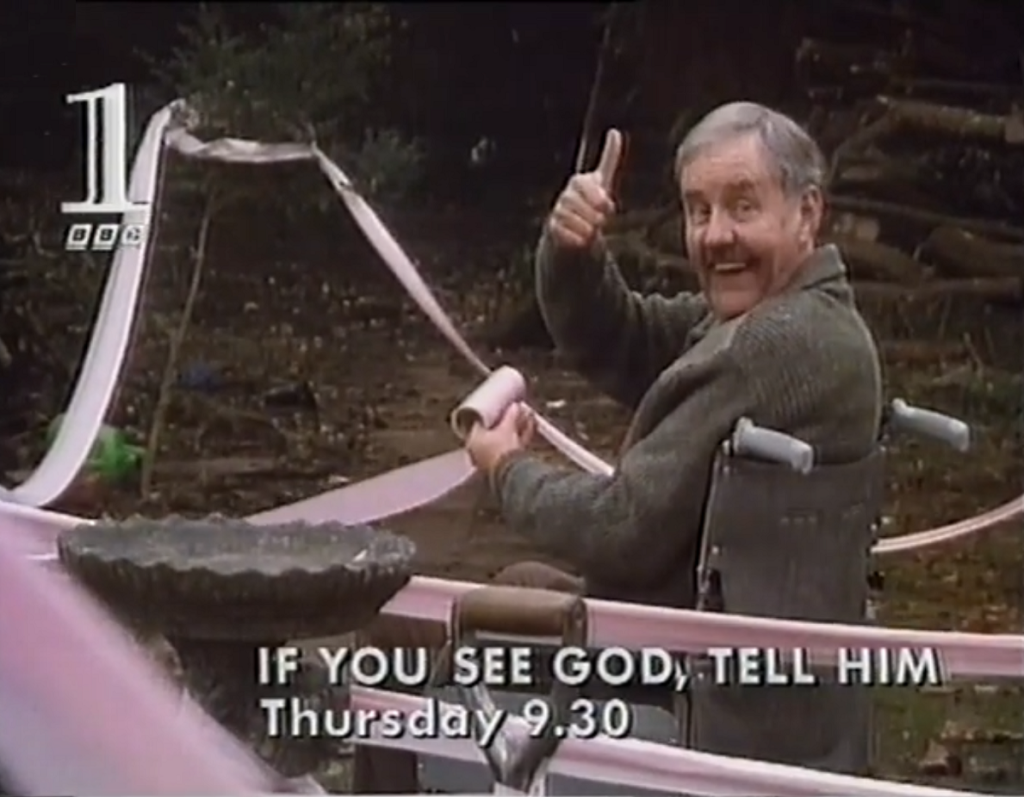
Richard Briers takes the lead in a brutal David Renwick and Andrew Marshall satire on the effect of advertising on the poor and vulnerable. Possibly not quite what viewers who liked it when Victor Meldrew said “I don’t believe it!” were expecting.
Naked City (Channel 4, 1993-94)
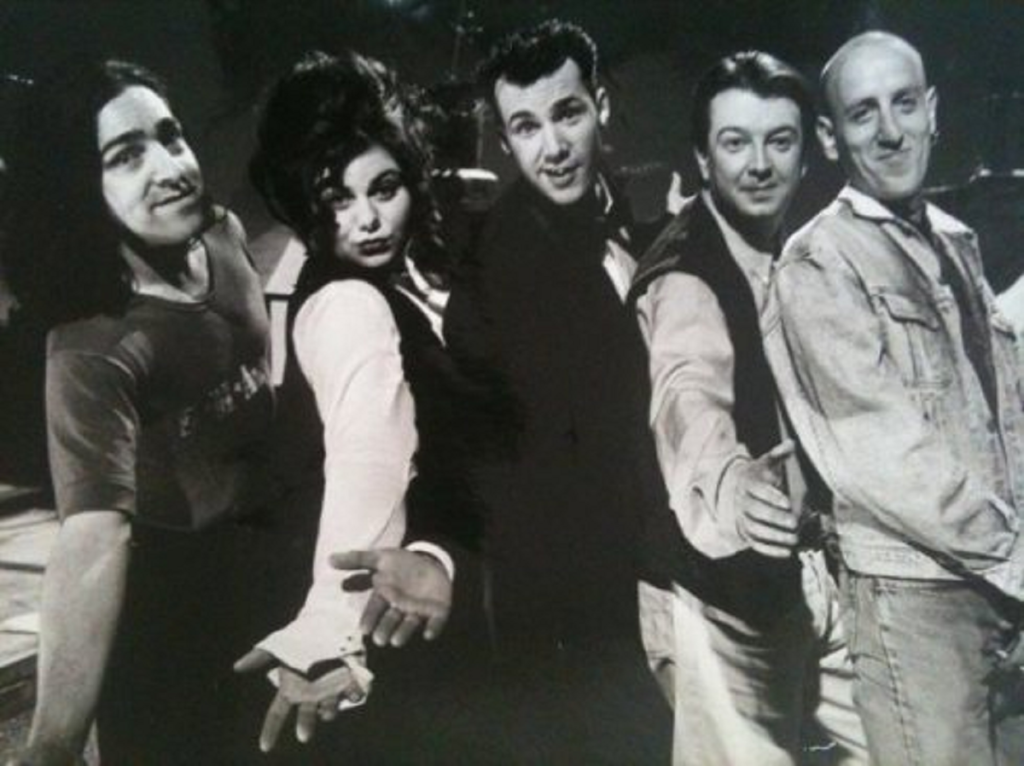
Early-to-the-party attempt at doing a Guardianista-friendly take on late night Friday wildness’n’bands shows, presented by Caitlin Moran, Johnny Vaughan, Andrew Collins and Stuart Maconie and frequently hampered by inarticulate guests.
Clinton – His Struggle With Dirt (BBC2, 1998)
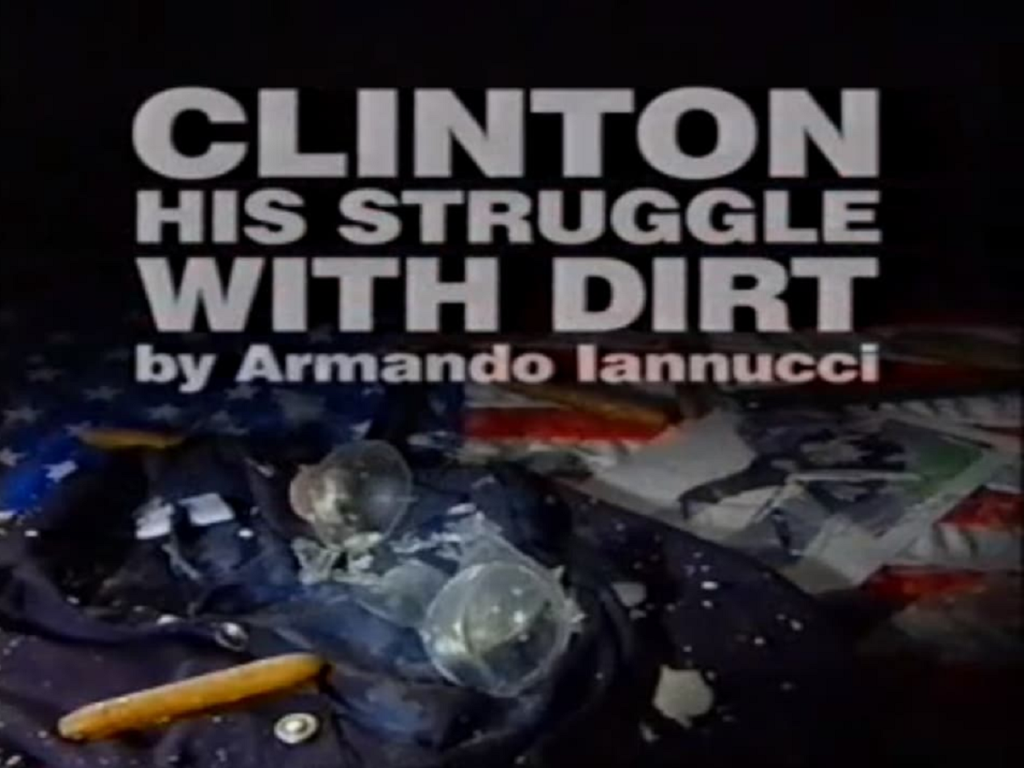
Armando Iannucci chairs a mock-documentary taking a look back at Bill Clinton’s presidency from an imagined future, little realising that the genuine future would be pretty much beyond satire.
Days Like These (ITV/Carlton, 1999)

Transatlantically translated remake of American sitcom smash That ’70s Show – instead of just showing the original – losing pretty much all of the charm and indeed jokes. They had to keep moving it around the schedules to give the other shows a chance.
So how did the first episode of Days Like These actually measure up against the pilot of That ’70s Show? Find out in All The Fun Of The Flares here.
Servants (BBC1, 2003)
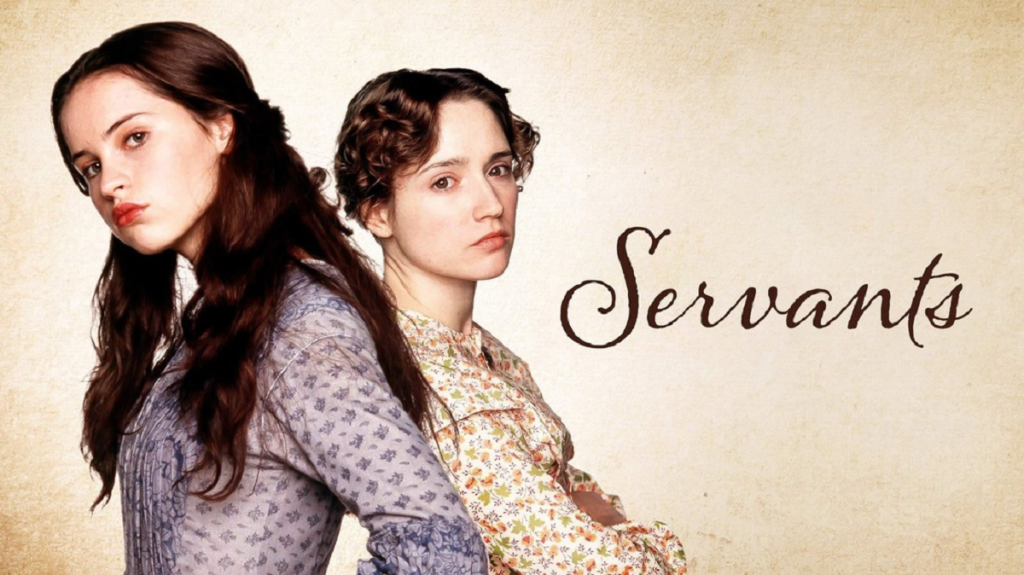
Nineteenth Century-set below stairs light costume drama featuring some people doing some stuff and Richard Herring as Percy The Shepherd.
You can find out what my response was when asked ‘Have you ever met a shepherd?’ in Emergency Questions here.
Primeval (ITV/Impossible Pictures, 2007-11)
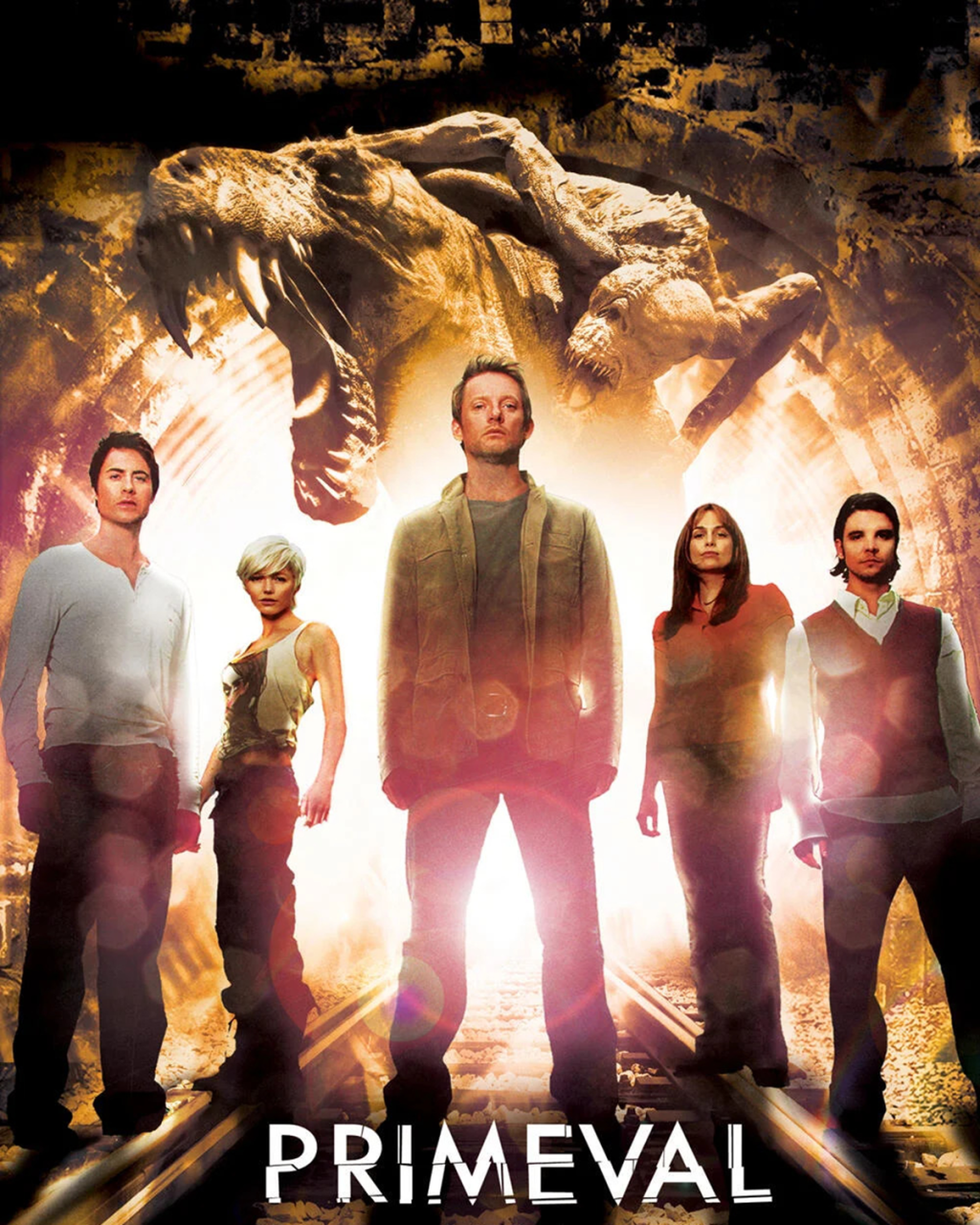
Building-smashing Saturday teatime terror as uncannily coincidentally uniformly good looking gang of experts and researchers try to track the source of unstable dimensional anomalies catapulting CGI dinosaurs into the present.
Inhumans (ABC, 2017)
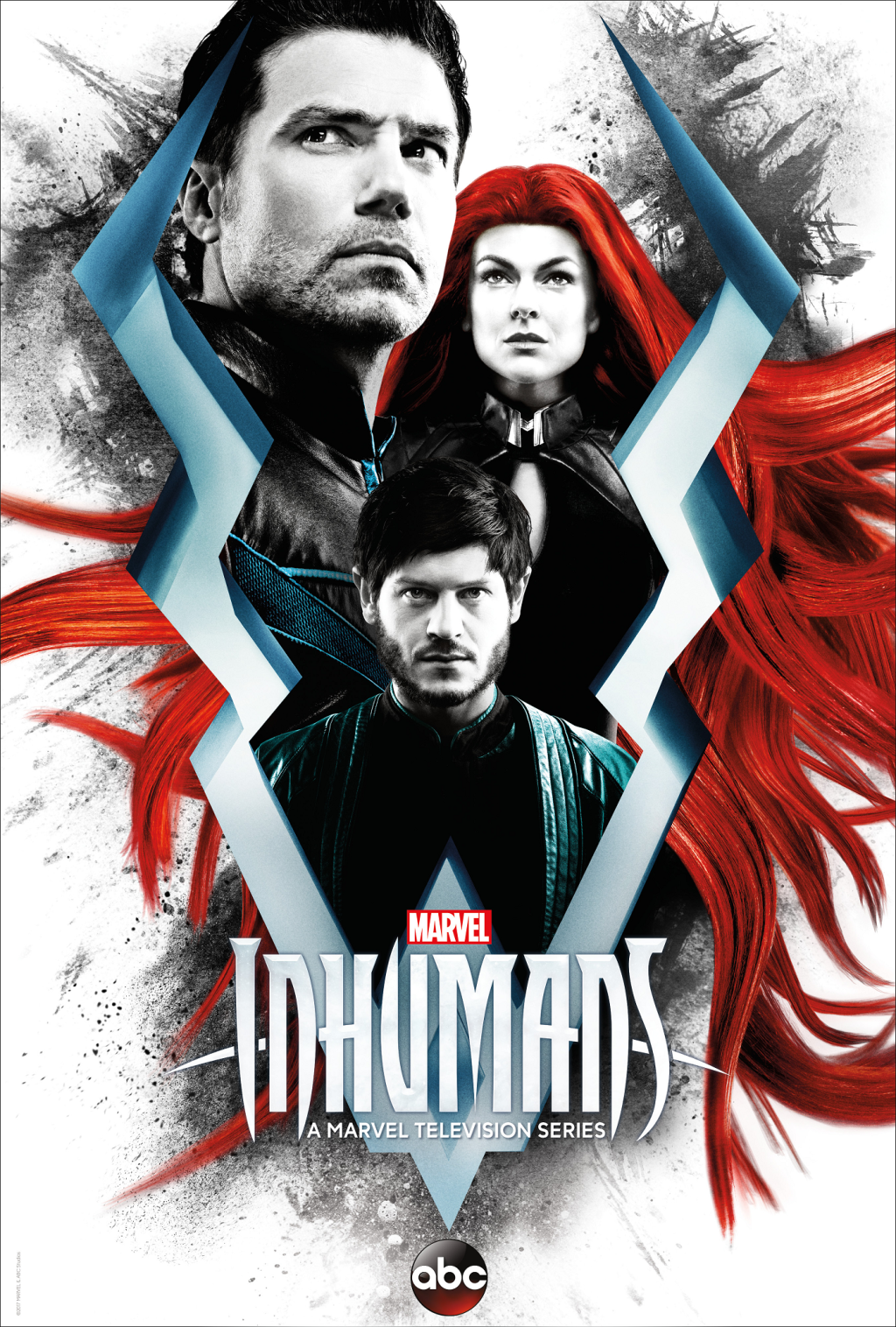
Agents Of S.H.I.E.L.D. spunoff Marvel Cinematic Universe soap opera melodrama on the moon with a royal family of evolved humans (and massive dog) torn apart by political chicanery. Marvel reportedly aimed to expand their audience with this, presumably by boring them into submission.
Phil Catterall made it all the way through Inhumans so you don’t have to, as you can find out in It’s Good, Except It Sucks here.

Buy A Book!
You can find tons more examples of the TV That Time Forgot in Keep Left, Swipe Right, available in paperback here or from the Kindle Store here.
Alternately, if you’re just feeling generous, you can buy me a coffee here. Why not get it from Big World Cafe (Channel 4, 1989), and then point out that you ‘remember’ it so the coffee doesn’t exist after all except also it somehow does?
Further Reading
If you enjoyed TV That Time Forgot then you’ll probably also like Emergency Questions here, Christmas Emergency Questions here, Trumptonshire Architecture here and The 100 Greatest Films Ever Made? here.
Further Listening
What’s my ultimate personal example of TV That Time Forgot? Find out in Looks Unfamiliar here…
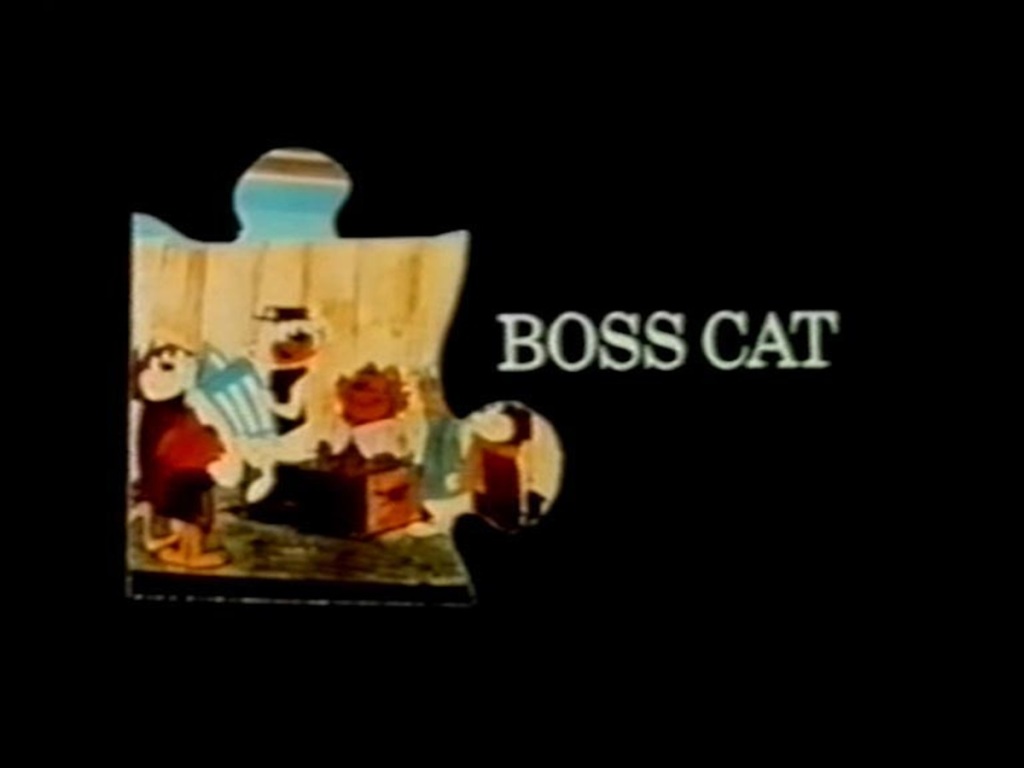
© Tim Worthington.
Please don’t copy this only with more italics and exclamation marks.
